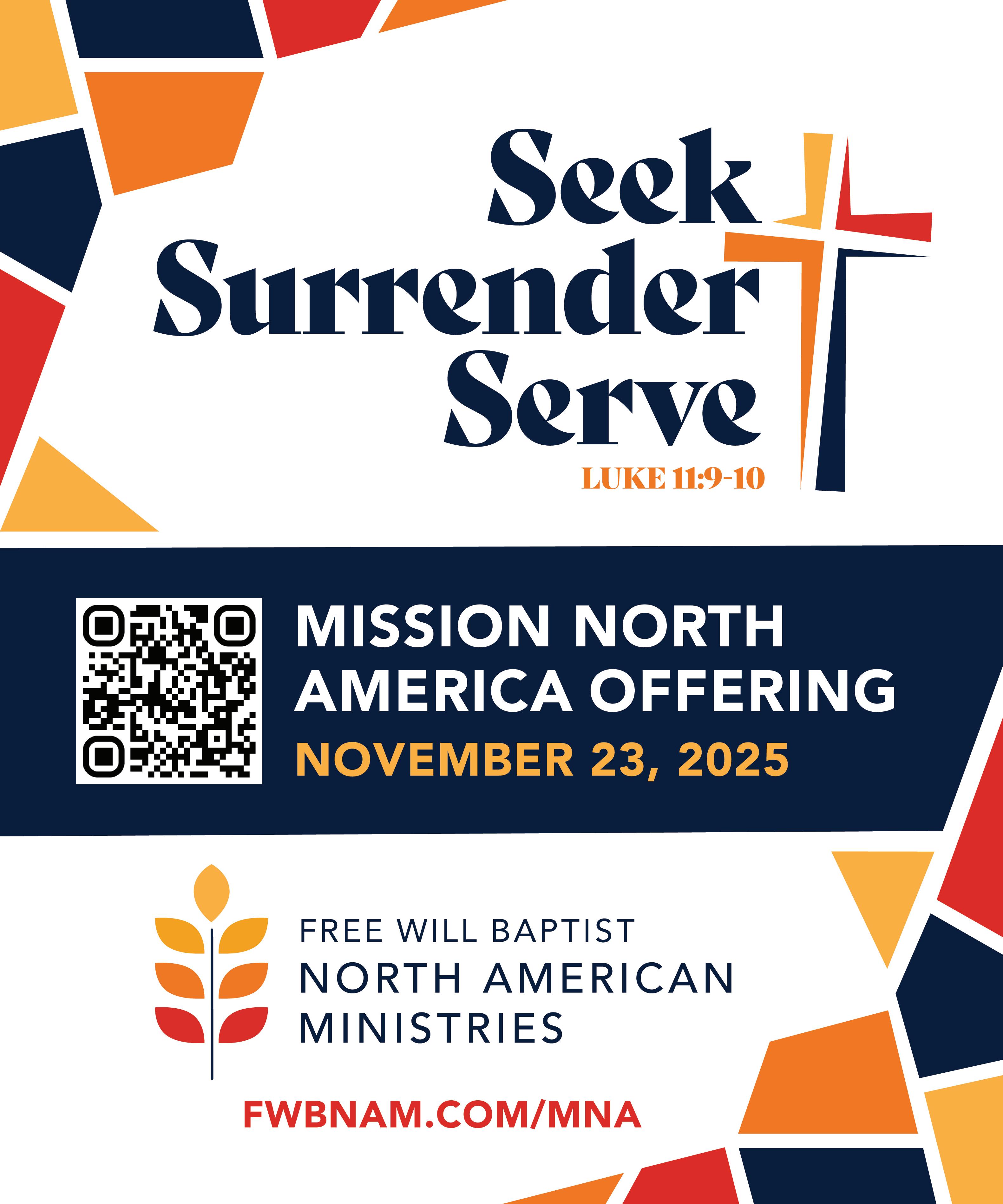Ordinary Days
The Heart of Ministry
Conversations About the Church
Cultivating Churchmen
Jesus Satisfies Our Needs
The Most Overlooked Investment in Church Growth Spanning Generations


Ordinary Days
The Heart of Ministry
Conversations About the Church
Cultivating Churchmen
Jesus Satisfies Our Needs
The Most Overlooked Investment in Church Growth Spanning Generations


INSIDE YOU’LL FIND HOW TO:

• Connect with your adult children
• Strengthen your grandchild’s faith
• Discover your unique grandparent style
• Navigate tough cultural topics with grace
• Pass on faith through stories, blessings, and prayer
• Step confidently into your God-given role







BY ERIC K. THOMSEN
Have you noticed we live in a broken world? Yeah, I know — you’ve noticed! It’s hard to miss. Just watch the news. Or look up the Google search trends for 2025: anger, gun violence, bullying, war, homelessness, debt, inflation, immigration, trafficking, racial division, and on and on. No wonder we struggle with anxiety!
And it’s not just “them.” It’s also us. Our families. Our church families. Every human living in this sin-cursed world. This desperation gives the church an opportunity to shine a beacon of hope. In a 2023 Barna survey, 40% of non-Christians indicated they look to the church to meet physical needs and provide counseling and care. In other words, they see the church as a hospital.
And they’re right. Consider the ministry of Jesus: healing; restoration; compassion for the marginalized, outcasts, diseased, addicted, and oppressed. He healed people physically to heal them spiritually. He met the woman at the well, ate with tax collectors and sinners, touched lepers, restored sight. He met felt needs to meet their deepest need — spiritual healing in Him.
In Luke 4:16-20, in Jesus’ first “sermon,” He identified His ministry with words from Isaiah. He came to heal, free, and anoint. He came for a broken world. And the same Spirit who empowered Isaiah’s words, who approved and was active in Jesus’ earthly ministry, still empowers the church today. To do what?
+ Preach good news to the poor. This word preach, or more literally proclaim, eventually became our English word evangelize. In this context, I think Jesus described the spiritually poor. Those needing the gospel. And who is that? Everyone. Without Jesus, we have nothing.
+ Proclaim freedom to the imprisoned. Those bound by guilt, shame, pride, corruption, legalism, confusion, grief, addictions. Those trapped by sin. Our world. Do you recall Galatians 5:1 where Paul reminded the Galatians Christ had set them free, not to return to slavery? The church should be a place to be set free!
+ Proclaim sight to the blind (proclaim healing). Jesus offered physical healing enroute to spiritual healing. How

does the church live this out today? In hospitals and nursing homes; to the terminally ill and their caregivers; through pregnancy centers, foster care, and orphan care (James 1:27).
+ Free the oppressed. Here, I believe Jesus described those oppressed by spiritual bondage. Certainly, I acknowledge the validity of seeking freedom for both the spiritually and physically oppressed in the ministry of the church (reflected in the rich history of Free Will Baptists). However, we must remember the eternal priority and not lose the best in pursuit of the good.
+ Proclaim ultimate healing. I love the phrase, “The Year of God’s Favor.” For Isaiah, it was the promise of eventual freedom for Jewish captives in Babylon; for Jesus, fulfilling the prophecy of the coming Messiah; for us, it is the reminder, one day, this broken world will be healed. That’s the ultimate healing the church offers. Not perfection. Not the latest songs or even great sermons. The church offers hope — the hope of Christ, who gave Himself for us and who redeemed us as His people. Hope beyond suffering. Hope beyond the grave. Hope for eternity with Him.
Eighteen months ago, when the casket closed at my dad’s funeral, I was utterly broken. But our church stepped in. They packed the funeral home. They stood beside us quietly at the graveside. They offered words of encouragement, casseroles, cards, texts, emails, and even offered to mow my mother’s grass. Their presence and concern reminded us we don’t grieve without hope. In those hard moments, the church healed us with the hope of the gospel.
About the Columnist: Eric K. Thomsen is managing editor of ONE Magazine. Email: eric@nafwb.org.
At Welch College, every facet of life, from academic programs to spiritual formation and campus life, is designed to develop the whole person. With more than 50 undergraduate, graduate, and online programs, you will be prepared to serve Christ in the field you choose.
Learn more about Welch College today!
welch.edu
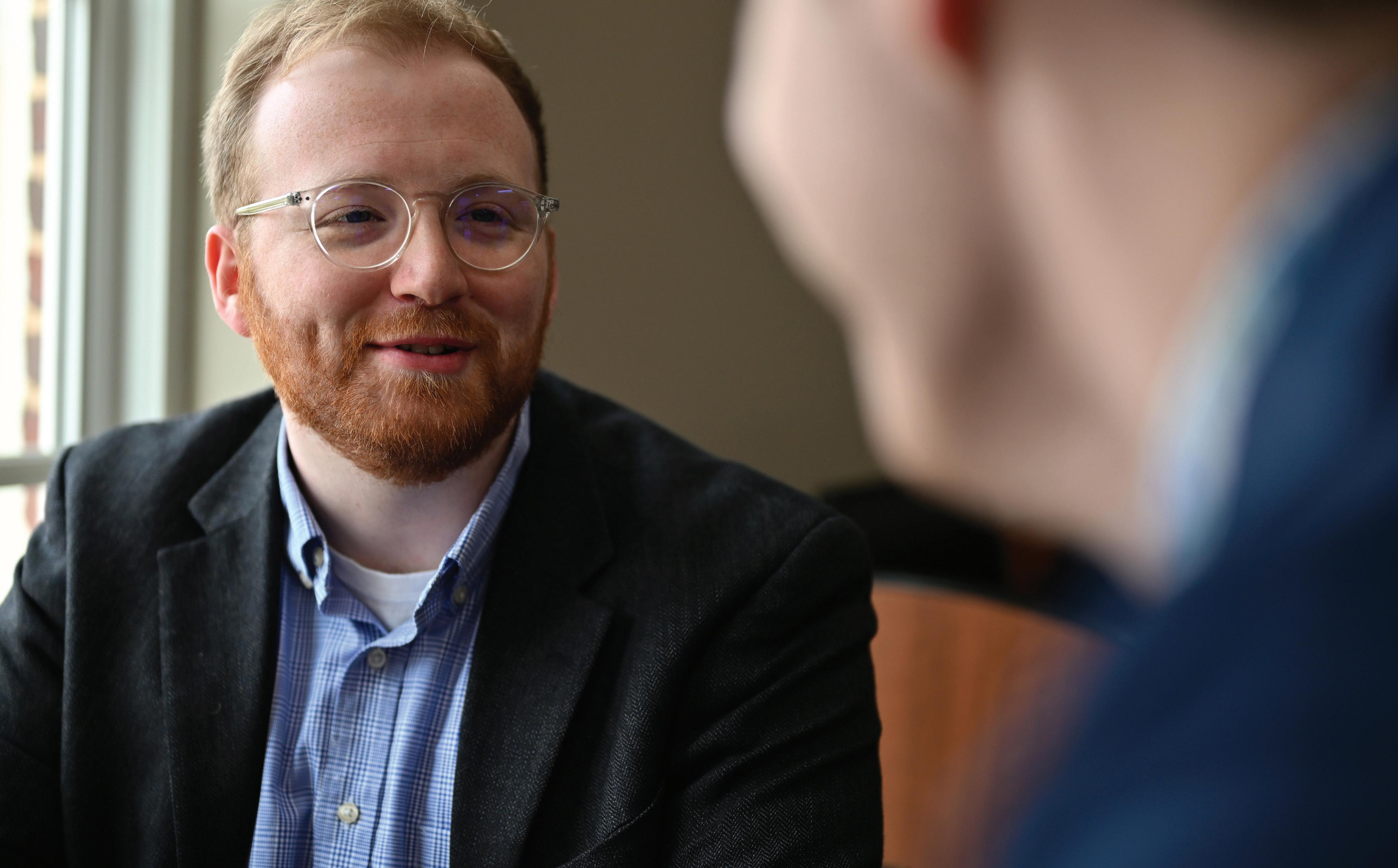

November 2 • Developing Discernment • Colossians 2:6-8; Matthew 13:10-17; Proverbs 4:23-27
November 9 • God’s Miraculous Provision • 1 Kings 17:1-4
November 16 • Standing for the One True God • 1 Kings 18:19-46
November 23 • Faithful Leadership • 2 Kings 2:1-15
November 30 • Humble Obedience • 2 Kings 5:1-27
December 7 • Answering God’s Call • Isaiah 6
December 14 • The Suffering Savior • Isaiah 52:13 – 53:12
December 21 • God’s Promised Messiah • Isaiah 7, 9
December 28 • Lessons From the Life of Jonah • Jonah 1, 3



We rarely expect God to interrupt our routine. But sometimes He shows up on an ordinary day, and nothing is ever the same again.


Almost 20 years ago, I woke up to just another normal morning. I was working as an installer for a satellite television company. I arrived at work, picked up my orders, loaded my van, and set out to complete the day’s assignments. Little did I know my next stop would change my life forever. I greeted the homeowner who opened the door and said, “Hello, my name is Armon, and I’m here to install your satellite television.”
The man at the door was a pastor named Chad Kivette, who had just moved to Colorado to start a church. After a short introduction, he asked, “Where do you go to church?”
“I don’t,” I replied.
For the next few hours, the man followed me from room to room, showing me where he wanted his televisions and asking questions like: “Why don’t you go to church?” “Do you know who Jesus is?” and “Have you ever been to church?”
Honestly, I was annoyed. I just wanted to do my job and go on to the next house. Today, I understand the tremendous love Chad showed for me, but in that moment, I just wanted to get away from him! Finally, I explained that my experience with Christians had led me to believe they were all hypocrites, and I didn’t want to be around them.
He replied simply, “Well, you can be with the hypocrites in church, or you can be with them in Hell.”
I didn’t know it then, but what I’ve come to realize is that I had based my relationship with God not on who God was, but on those who had expressed faith in Him. I saw imperfect people claiming to follow a perfect God and failing miserably. What else did I expect?
I went home that night and told my brother about my interaction with the pastor. My brother had recently begun getting serious about his own faith and had been urging me to go to church. So, we made the decision to attend a service together. I’m not sure what I expected, but it was far more than I ever imagined. Even now, as I write this, I am flooded with the same emotions I felt that day. I was breaking, or maybe I was just realizing I already had been broken.
When Pastor Chad spoke, everyone else faded into the background. I remember sitting there, hearing the gospel for the first time, and being overwhelmed because this man seemed to know all the secrets about me I didn’t want anyone else to know. For the next three Sundays, I listened as Chad shared about who I was and what God had done for me. Then, humbled by the Holy Spirit, I walked into his office on a Wednesday night and said, “I need to give my life to Jesus.”
Chad immediately began spending time with me, becoming my mentor and my best friend, pushing me to be faithful, giving me opportunities to grow, and correcting me when I fought against all of it. Looking back, I wish I had been more submissive to his leadership. I fought hard at times because my flesh and my pride were being challenged to submit to God’s will. As silly as this sounds, I remember getting into a yelling match on the phone where I exclaimed, “Dude, you’re not my dad!”
I’ve hung up on him, yelled at him, cursed at him, and believe it or not, even unfriended him on Facebook. (Yes, we’ve reconciled!) Through it all, Chad never stopped loving me and guiding me. He has, BY ARMON JORDEN
though imperfectly, loved me and shown me what it means to love others like Jesus. Most of all, Chad demonstrated the difference you can make in people’s eternal lives. His sacrifice and his family’s sacrifice brought me to the Lord. Along with many others, they gave up the comfort of home and family so I could have the opportunity to hear the gospel.
Since that first day at his house, my wife, my daughter, my son, my mom, and my dad have all become believers or turned back to God and have been baptized. The sacrifice of the Kivette family made an eternal difference in generations of my own family…and not just mine. Countless others have had similar, life-changing encounters.
Watching him, my love for sharing the gospel has grown. Chad’s desire to see people come to know God’s love has kindled in me a need to live for the same outcome. Maybe it’s the difference I see in my own life? In the life my kids now live? Whatever the reason, I know this: if I do anything less, I will have wasted my life.
I have since answered the call to pastor. My wife and I, along with two other couples, are moving to Hawaii to start a church, where many people are far from God. We want to make the

same difference in people’s lives. We want to love them, share the gospel, disciple them, and send them out to start more churches. We want generations to be changed. We want God to have the relationship He desires with His people.
In 1 Timothy 2:3-4, Paul made it clear God desires all people to be saved. His heart longs for the salvation of His creation. And He uses us, His followers, to spread that message. I wish I could say I perfectly live out the example Chad has shown me, but I don’t. I wish I could say I perfectly obey God in everything He commands, but I don’t. I wish I could say I wasn’t the hypocrite I once accused others of being, but sometimes I am.
But I can say this: God will use people like me — and people like you — to reach those who need Him. We simply must open our eyes to the opportunity. Maybe someone else’s “ordinary day” will become life-changing because we said yes to God’s call.
About the Writer: Armon Jorden and his wife Yvette are lead church planters at Ho’omana Church, a Free Will Baptist Fellowship in Hilo, Hawaii. Armon was saved through the ministry of a NAM church plant in Grand Junction, Colorado, and he is one of the first “second-generation” NAM planters. The Jordens and their team are passionate about sharing the gospel and discipling the lost.
Not long after Maurine Edwards Lee graduated from Free Will Baptist Bible College in 1952, she and her husband George C. Lee followed their commitment to Christ to Shelton, Nebraska, as early home missionaries in 1954. It was the beginning of a long, fruitful ministry. While George pastored in Georgia, North Carolina, and Tennessee, Maurine focused on serving others: sending cards or baking, canning, sewing, and quilting items to give away. She devoted many years of service to the local, state, and national levels of WNAC and became a regular contributor to Co-Laborer magazine. She served as teen editor for Randall House Publications (today D6 Family Ministry) and wrote Sunday School and CTS materials. Perhaps best described as "quietly influential," Maurine is remembered for her compassion and gentle spirit.
Why not establish your own lasting legacy with an endowment through Free Will Baptist Foundation to benefit North American Ministries?
right)

BY CHAD KIVETTE
Before the snow covered the Rocky Mountains in the winter of 2005, our family packed a moving truck and headed west. It wasn’t quite California, but Grand Junction, Colorado, seemed plenty far to a country boy from Alabama. As we prepared to move, people often asked my wife Paula how she felt about leaving her family to move to Colorado, especially with two young girls. She responded with words I’ve never been able to forget. She said, “We have all eternity to spend with our family, but I believe there will be people who may not make it to Heaven if we don’t go.”
When we arrived in Colorado, unfamiliar territory, unfamiliar faces, and unsettled nerves were only a few of the obstacles we faced. School had already begun, so we had to get the girls enrolled quickly. There were appointments and utilities to set up. Football season was well underway, and being from Alabama (Roll Tide!), I had to get our television provider set up. I made an appointment for a technician to come by and set up the service.

Little did the technician know, I had moved to Colorado to tell everyone about Jesus and expected them to be saved. After spending several hours with him and sharing my faith in Jesus, the young man agreed to start attending Wednesday night Bible study. Not only that, but he also told his brother about our church, and they started attending the very next Sunday.
The Lord had been working on the young man’s heart before I ever left Alabama. It’s almost as if we had to leave our family to become part of what God had already started in his family. He showed up to Bible study like he said, week after week. After a few weeks, he came to my office one day and gave his heart to the Lord.
The “buzz” word in many churches today is discipleship. It is the popular thing of late to have discipleship groups or D-Groups, as some would call them, but discipleship was not emphasized in 2005 like it is today. Also, my Dish Network installer had never heard much about discipleship, since he didn’t grow up in church. After he was saved, discipleship was just a natural occurrence in our friendship. He longed to hang out with
me because I shared Jesus with him, and I tolerated him. Just kidding! As described in 1 Peter 2:2, his desire to know God was like a newborn believer who desired, who longed for, the milk of God’s Word. He wanted to know the Lord, and as a result, he grew in his relationship with Him.
I recall hearing someone say great discipleship isn’t built overnight. It’s forged through consistent, intentional time. Time is one of the greatest investments many people seem “too busy” to make.
In the 2008 ONE Magazine article “Roadside Discipleship,”
I addressed the ongoing work of being an example of Jesus, truly living out what He taught.
Discipleship is intentional, and it takes time. But the fruit is undeniable.
Paul told Timothy (1 Timothy 4:12) to be “an example of the believers in word, in conversation, in charity, in spirit, in faith, in purity.” Jesus said, “I have given you an example that ye should do as I have done to you” (John 13:15).
In that article, I recounted a specific time when discipleship happened beside the highway. My Dish Network guy and I had stopped to help a lady with a flat tire. Though I was unable to change her tire, I gave her a card and invited her to church. She broke down and began to cry. She came to church the next Sunday and brought nine family members with her. Many of them eventually accepted Christ and are still in church today.
I had no idea how a single roadside conversation would profoundly impact her and her family, much less the lasting effect it would have on Armon, my Dish Network installer, or even my own family during a challenging season still ahead.
Nearly a decade after we met on the road, this same sweet lady moved to Tennessee to help my wife care for her mother, who was dying from cancer. It is amazing now to think of Paula’s words, that we left family so others could hear about Jesus, and now that lady moved to Tennessee to share the love of God with our family. God is good.
Not only was my family blessed by this discipleship opportunity, but that day was also when Armon Jorden began to see and feel Jesus in action. He saw people invited to Jesus on the side of the road, and he saw whole families come to Jesus as a result. God planted a desire within him to replicate the discipleship he had experienced. Since that day, Armon and his wife Yvette have been to many countries, sharing the gospel and discipling dozens of young men and women themselves.
Today, I’m not discipling on the highways of Colorado, but in the humid hedges of Mississippi, where God has called us to continue telling others about Him. Discipleship happens wherever people are living life. That day with Armon, it was on a highway. Today with Josh, it’s in the woods after a day of hunting. Sometimes, it’s in a restaurant with Eric or out on a fishing boat with Dale.
Discipleship is intentional, and it takes time. But the fruit is undeniable. Today, Armon and Yvette are “second-generation” NAM church planters to Hilo, Hawaii, building a team to take the gospel to the ends of the earth.

Discipleship with Armon could not have happened without evangelism. So, I want to conclude with the last two lines from the article I wrote in 2008: “Reaching one, so they can reach one, so they can reach one. Isn’t this what true discipleship is all about?”
About the Writer: Chad Kivette and his wife Paula have served as church planters with North American Ministries for over 20 years, establishing new works in Colorado and Tennessee. Currently, they are leading a revitalization work at New Life FWB Church in Amory, Mississippi.
BY PAUL V. HARRISON
“And Abram took Sarai his wife, and Lot his brother’s son, and all their substance that they had gathered, and the souls that they had gotten in Haran; and they went forth to go into the land of Canaan; and into the land of Canaan they came” (Genesis 12:5).
Only God would have selected an old idolater and his barren 65-year-old wife to begin a new people group. But isn’t that just like Him to take up most unusual instruments to accomplish His purposes?
In December 1894, four adults and four children gathered in New York harbor to board a ship bound for Morocco. If they had nothing else, they had missionary spirit.
Henry A. Hammer, a one-armed preacher, had been teaching school and preaching in Oklahoma. While he was supposed to be one of several men to blaze the trail, the others lost their inspiration. How easy to excuse himself, but there he stood, ready to board the boat. As they got underway, he said: “Lift up your eyes, Morocco, for a gleam of light is coming to you!”
Joining him were Mr. and Mrs. Albert Nathan and their four children, the youngest only a few months old. The son of a wealthy orthodox Jew who had “great influence in the synagogue,” 19-year-old Albert had visited New York City and heard singing coming from a hall. He entered, heard fervent prayer, and was struck by the mercy of God. The soloist invited him home, witnessed to him, and the young man gave his heart to Jesus.
Albert informed his parents of his conversion in a letter. His father responded, “You are no longer my son.” His mother said, “I would you had died.” His brothers and sisters disowned him. This rejection made him even more determined to share Christ “where it is needed most.”
Albert’s wife had gumption to match her husband’s. With her four little ones, two of whom were sick as they stood on the dock, she thought making sacrifices for the Lord was the norm. She found encouragement in Romans 12:2, concluding that “taking her children to dark Africa fell into the category of ’reasonable service.’”
Accompanying the Nathans was their maid, 23-year-old Hettie Fernbaugh. Born in Indiana and poorly educated, she had Baptist roots, and her maternal grandparents served
as missionaries in Kansas. Somewhere along the line, she joined up with the ultra-conservative Brethren in Christ. Her Sunday School class, believing she had potential, passed the plate to send her out. Their $80.28 offering launched her missionary career. In Morocco, she continued to wear plain clothing and a head covering.
Africa proved challenging. Tangier had “no system of drainage,” and the people made “no effort at cleanliness.” Opposition abounded. Difficult hardly describes the situations they faced. From here and there, we learn that none of these missionaries stayed very long. The Nathans wound up ministering to Jews in Spain. Hettie the maid developed jaundice in 1900 and returned to the States. “In faith” she refused medicine and died in Oregon at age 36 years and 11 days.
Henry Hammer married while in Africa and returned to America in 1900. At a conference in Hastings, Nebraska, he met Maude Cary, a young woman aspiring to missionary service. She eventually made her way to Morocco and served 54 years.
About the Columnist: Paul V. Harrison has pastored Madison FWB Church in Madison, Alabama, since 2015. Previously, he pastored Cross Timbers FWB Church in Nashville, Tennessee, for 22 years. He was an adjunct professor at Welch College for 17 years, teaching church history and Greek. Paul is the creator of Classic Sermon Index, a subscription-based online index of over 66,000 sermons, with clients including Harvard, Baylor, and Vanderbilt, among others: www.classicsermonindex.com/.

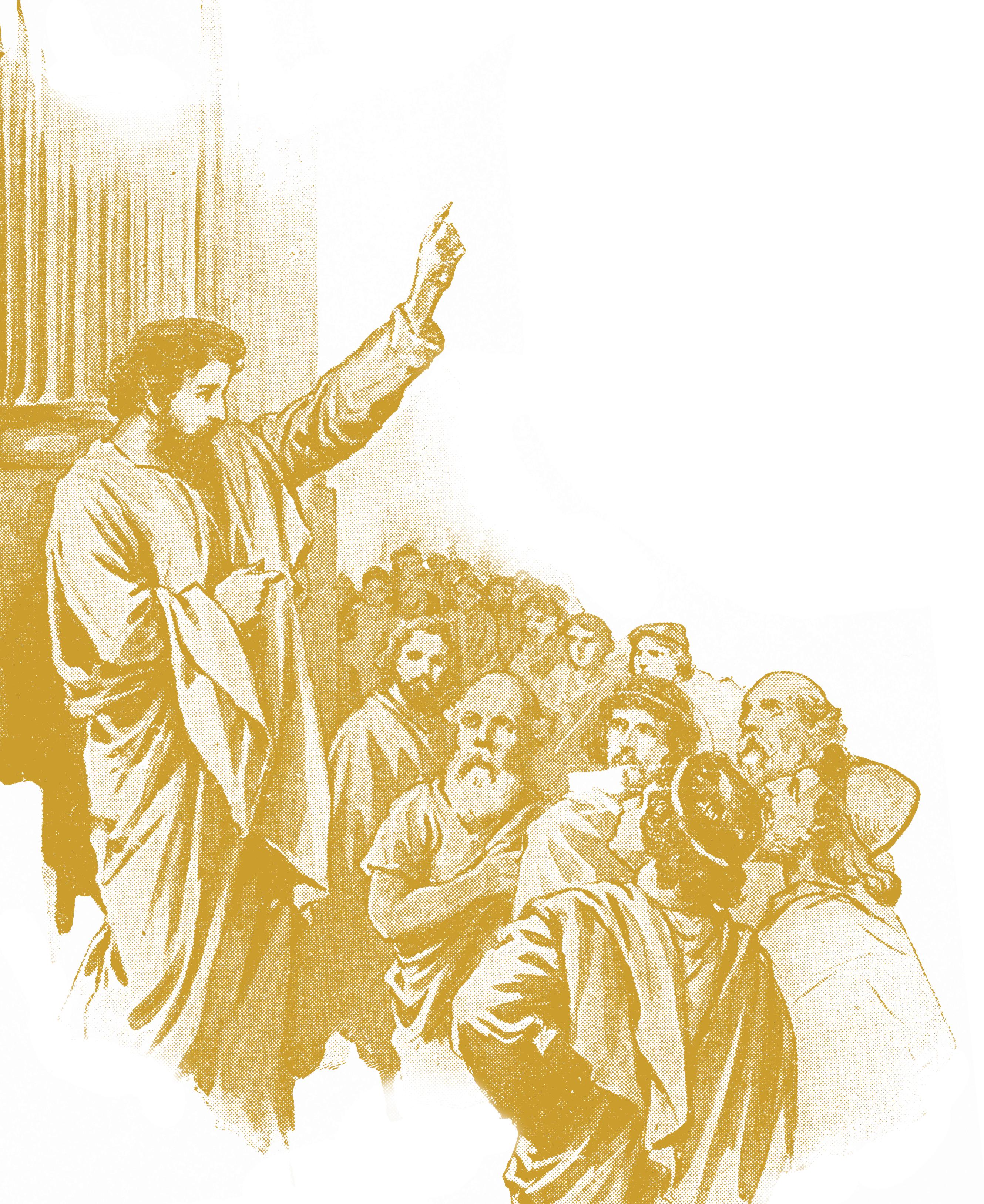
BY JESSE OWENS
While reading the second half of Acts recently, I was struck by the commitment of Paul and his companions to press forward in ministry, no matter the opposition they faced. We find a good example in Acts 16-18. Just after the Jerusalem Council (Acts 15), Paul and Silas set out on Paul’s second missionary journey. In Acts 16, they added Timothy as a companion in ministry and soon ended up in Troas. In Troas, Paul had a vision by night where he saw a man from Macedonia pleading, “Come over into Macedonia, and help us” (Acts 16:9). Paul, convinced this vision was the Lord’s will, set out. On the way to Macedonia (the region where Thessalonica was), Paul and his companions shared the gospel in Philippi with Lydia and then with the Philippian jailor after being stripped, beaten, and imprisoned. These beginnings are remarkably humble ones for the Philippian church.
In Acts 17, Paul and Silas finally made it to Thessalonica, where Paul reasoned with Jews in the local synagogue for three Sabbaths about Jesus, His death, and His resurrection. Some were persuaded and believed. Other Jews stirred up a group of men to harass Paul and his companions as well as their host Jason, who was abused when the crowd failed to find Paul and his companions. Concerned for Paul and Silas, the believers in Thessalonica sent them away under the cover of night. The mob was so outraged with Paul and Silas, they tracked them down in the next town, Berea. Paul was then sent away to Athens, where he preached in the synagogue and then at the Areopagus before moving on to Corinth.
What strikes me in Acts 16-18 is the commitment of Paul and his companions to take the gospel wherever the Lord led, no matter the abuse or ridicule they faced. Their commitment led me to reflect on the questions: “Why are they doing this? How do they continue to press on in ministry despite such opposition?” As I read 1 Thessalonians 2:1-8, answers to these questions emerged. First, Paul and his companions had a singular focus: the proclamation of the gospel that had transformed their own lives and had been entrusted to them. Second, they were motivated by a desire to be faithful to the Lord. As I read 1 Thessalonians 2, I also noted they were determined to minister boldly but with gentleness. I believe each of these points can be paradigmatic for how we think about pastoral ministry.
Paul and his companions went to Thessalonica to preach the gospel in response to the Macedonian vision. As noted, this path was not easy. Paul faced all sorts of opposition and physical abuse on his way to Thessalonica. Paul alluded to this difficulty in 1 Thessalonians 2:2, noting, “But even after that we had suffered before, and were shamefully entreated, as ye know, at Philippi, we were bold in our God to speak unto you the gospel of God with much contention.”
Paul and his companions had been “roughed up” at Philippi — stripped of their clothes, beaten, and imprisoned. Paul could have hung it up. He could have called it a day. We probably would not have blamed him. Yet, Paul moved on to Macedonia, the next region and town. Why? How? Because his whole life was dedicated to taking the good news about Jesus wherever he was called to go.
I am struck by Paul’s clarity and singularity of purpose. His entire life was about gospel proclamation. He always looked for an opportunity to preach the gospel wherever he went. Paul wanted the gospel to spread, and he did not wait for the perfect opportunity or for the mood to be just right. He constantly sowed the seed of the gospel. That is what he did in Thessalonica. Paul essentially said in 2:1: “You know we did not come empty-handed. Our coming to you was not in vain. Because we came with the ’gospel of God.’” Paul came with the very thing the Thessalonians needed — the gospel.
Paul wanted the gospel to spread, and he did not wait for the perfect opportunity or for the mood to be just right. He constantly sowed the seed of the gospel.
Paul’s primary motive in ministry was faithfulness to God. At the beginning of 1 Thessalonians 2, we learn some in Thessalonica questioned Paul’s motives for ministry, wondering what Paul hoped to gain. In the ancient world, traveling teachers often went from town to town to take advantage of people. Apparently, some had accused Paul of getting what he wanted in Thessalonica and then moving on to the next place under the cover of night.
Critics will come and go, but the One who tests hearts remains. Our ministry must be motivated by faithfulness to the Lord.
Yet Paul did not go to Thessalonica for personal gain. He was not trying to trick anyone, take advantage of anyone, or stroke his ego (verses 3-6). God called Paul to this place, and he sought to be faithful. Through his obedience to God, Paul longed for the Thessalonians to hear the gospel, repent, and believe the truth. And now, having heard this critique against himself and his ministry companions, Paul was able to say with a clear conscience that he had been faithful.
Paul expressed he was not beholden to anyone in Thessalonica. He was not trying to be a smooth talker. He was not trying to figure out the key figures in town so he could gain their approval by saying what they wanted to hear. He was not trying to “win friends and influence people” through empty flattery (verse 5). His goal was to please God (verse 4). The easiest way for Paul to get off course would have been to shape his ministry and persona around the desires of the most influential figures in Thessalonica. But that almost certainly would have led Paul to distort the gospel message in some way. He resisted this temptation.
It is not that Paul was indifferent to the Thessalonians and was just serving God how he saw fit. Later in this letter, he poured out his heart to the Thessalonians. Paul wanted a reciprocal relationship with them whereby he loved them and cared for them through his ministry, and they loved and cared for him in return. But in response to critiques of his ministry, Paul said, with a clear conscience, “We did not shape our ministry around the desires of any individual or group in Thessalonica. We did not seek human approval. Our goal was faithfulness to the Lord, and He can test our hearts to know this is true.”
Pastors who want to be faithful cannot live and die by human approval. If we live to be congratulated and patted on the back, we will end up doing whatever it takes to get and keep approval. But if our work is done in faithful service to the Lord, while criticism may hurt us, ultimately, it will not crush us because we have divine approval. Critics will come and go, but the One who tests hearts remains. Our ministry must be motivated by faithfulness to the Lord.
Paul described his demeanor among the Thessalonians as gentle (verse 7). He paints a picture of a nursing mother caring for her child. She is careful and thoughtful, tending to each need. That is how Paul ministered among the Thessalonians. He did not roll into town, announce his credentials, and tout his education. He did not brag about surviving beatings in Philippi. He did not demand they treat him like an apostle or expect them to meet his every need. On the contrary, he gave of himself humbly. In verse six, Paul acknowledged he could have made demands. But he did not. He gave of himself. He did not think too highly of himself. He was a servant of the Lord, a servant of the Thessalonians, and he acted like it.
I am struck by the way Paul described his demeanor here: “So being affectionately desirous of you, we were willing to have imparted unto you, not the gospel of God only, but also our own souls, because ye were dear unto us” (verse 8). He and his companions shared the gospel and themselves. Their ministry was not a “flyover.” They did not just dispense the message and move on. They gave of themselves to the Thessalonians. They ministered with care and gentleness to the holistic needs they encountered.
It is possible for pastors to become dictators, thinking they must constantly assert their pastoral authority. Such authority may be needed on occasions, but certainly not all the time. Sometimes, pastors become prideful, authoritarian, and brash. They are not gentle. But this approach misses the example set by Paul: “We were gentle among you.”
Pastoral authoritarians miss the example Paul was imitating — Jesus, the One who had every right to make demands but was characterized by gentleness and lowliness of heart (Matthew 11:29).
In this passage, we learn from the example of Paul, who learned from the example of Jesus. Ministry must be done for the right purpose, with the right motive, and with the right demeanor. The goal was the gospel, in obedience to God’s command and for God’s approval, but with a demeanor of gentleness.
Paul’s letters were somewhat unique to his ministry, but each one offers something to learn. Pastors, we must make our lives about advancing the gospel wherever we are. We must live for the Lord’s approval, so we will not be crushed when others do not approve of us. And we must do all these things with the humble, gentle demeanor of our Lord and Savior.
About the Writer: Jesse Owens is program coordinator of the Master of Arts in Theology and Ministry at Welch College and pastor of Immanuel Church, a church plant partnership of Free Will Baptist North American Ministries.

December 8-9 | Nashville, Tennessee
Join Free Will Baptists from across the nation as Dr. Sam Rainer, pastor and president of Church Answers, explores the importance of becoming a loved and respected church in your community.
Session 1: The Surprising Return of the Neighborhood Church
Session 2: The Trends That Can Make or Break Your Next Ten Years
Session 3: Proven Approaches From Churches Reaching Young Families
Session 4: Why Churches Are Targets (Keeping Your Congregation Safe)
Session 5: How to Get Everyone in Your Church Inviting Someone

For more information, or to register for the conference, visit NAFWB.ORG/LEADER/.
BY ERIC K. THOMSEN, M A N A G ING EDITOR
During a recent pastoral conference, I had an opportunity to interview three Texas pastors about “real ministry” during a public forum. Their answers were so compelling I asked to share them with our readers. These gracious pastors agreed. While space does not allow me to share all their answers, the following excerpts come from the eye-opening conversation (with an occasional comment from others in the room who took part in the three-hour dialogue).

Kyle Howell (Beth) is the pastor of Authentic Church in Victoria, Texas. In ministry more than two decades, Kyle holds a degree in pastoral ministry, a master’s degree in biblical studies, and is working toward his doctorate in apologetics. He describes his place of ministry as a racially diverse, blue-collar working town with many challenges, including a large homeless population.
Los Angeles, California, native Gabe Montez (Erika) pastors Bright Light FWB Church just outside College Station, Texas. Gabe holds a degree in theology, a master’s degree in mental health and wellness, and a doctorate in spiritual formation. He describes his area as an established rural community gradually being overtaken by new homes. His congregation largely commutes in from other locations, and while balanced between young families and seniors, the church lacks young adults.
Randy Puckett (Shelley) is the founding pastor of Eagle Heights Church in Richmond, Texas. A graduate of Randall University, Randy describes his place of ministry as extraordinarily diverse, an area where metropolitan Houston meets large suburbs. This diversity is reflected in the largely upper-middle class church family.

What part of the ministry do you love most, and what part of the ministry is your greatest struggle?
Kyle Howell: I love one-on-one conversations with people who have sincere questions about the Bible. I struggle with people leaving, or who are unengaged. But perhaps my greatest struggle is just trying to do it all myself. I’ve got to get away from that!
Gabe Montez: My greatest blessing is when the congregation prays together and enjoys doing it. Recently, I asked a young mother, who is new to the faith, if we could pray for her. When she agreed, we put her and her family in the middle of the entire church family, and we all prayed. It was moving for all of us. I struggle when people leave the church — just disappear after you have poured your life into them. It is heartbreaking, and I find myself grieving when they leave.
Randy Puckett: I love fellowship dinners (and not for the obvious reason). It is a blessing to walk in and see people sitting together that I would never expect — God putting people together who typically would never connect. I struggle when I see other church leaders get more from my people than I do. I’m afraid I don’t want to put people out, so I don’t ask them to get involved. And because I don’t ask them, I rob them of a blessing, a chance to grow and develop.
How has church ministry changed since you began your ministry?
Kyle Howell: Progressivism is growing rapidly, and the progressive church is a very liberal church. Evangelical Christians who believe in the literal Word of God are diminishing quickly, and we have a front row to all kinds of craziness in the name of Christianity.
For me, I love being in this time because of my interest in apologetics. This environment is leading people to ask questions, to go deeper in their faith. The world has flipped; good is evil and evil is good. In church ministry, we must be ready — ready for hard questions, constantly reminding our congregation and visitors their questions are always welcome. We must understand we are going counter-cultural now. There is not as much “fast fruit.” It takes time to grow the fruit, and we must be patient...committed to the whole race. It’s a marathon of discipleship.
Randy Puckett: Our whole culture has changed. We live in a post-Christian era, with less acceptance of the Word of God and different priorities on church attendance. Back in the day, events were never scheduled on Wednesday and Sunday nights — those were church nights. Now, I lose people regularly to sports tournaments, concerts, and community events. And, after the pandemic, even my most faithful members had a twoyear layoff in expectations. It has been hard to recover.
What do you see as a significant challenge facing your local congregation today? And how would you meet that challenge?
Kyle Howell: For me, that is a simple answer: discipleship. Taking the next step in faith. So many people are right there, ready to grow, and they just won’t take the next steps to deeper faith. We start small, one-on-one, leaders developing leaders, and it grows outward from there.
When asked to weigh in on the greatest blessings of ministry, members of the audience responded:
• Leading others to Christ
• Discipleship and mentoring
• Testimonies and shared blessings
• Outreach
• Spiritual growth in the congregation
• The salary (which drew chuckles)
• Congregational camaraderie
• Connections with people
Gabe Montez: From the get-go, my greatest challenge has been helping a long-established, shrinking congregation embrace change and be open to a new (and difficult) congregation representing every worldview and life experience — eventually accepting these newcomers as brothers and sisters. Embracing the “tough element” from our community has been hard even for me, and I know it is even harder for my church members.
Randy Puckett: Our people have everything materially, but I sometimes worry they are rich but actually poor, as Jesus described the church in Revelation. Our challenge is helping people engage with the gospel and serve. People will give money but not time. What I really want is an hour or two where they engage in ministry and are changed. In our environment, it is easy to become lukewarm. When some people achieve financial success, they begin to view God as a resource, not the Source.
“[My wife is] my favorite church member, she’s my best church member, and without her, I wouldn’t have a church.”
— Randy Puckett
What advice would you offer to a young ministry couple entering the ministry today?
Kyle Howell: Be consistent… in your life with God, before your family, before your church. Be ready for difficulty. And make sure your marriage is rock-solid, ready for the pressures the ministry throws at you.
Beth Howell: Find a counselor — a good one — both for you and for those who come to you for help. And, young pastor’s wife, pray for your husband. Every. Single. Day.
Gabe Montez: Be prepared to feel like a failure. Dealing with the culture, people letting you down, emotional and spiritual exhaustion — ministry can tear you apart. Take what God gives you, not your expectations but God’s reality.
Erika Montez: Understand God can use you, with all your unique personality traits. You don’t have to fit a “mold.” Just be yourself and who God wants you to be.
Randy Puckett: Let your wife be your favorite church member and encourage her to be herself, not what others expect her to be. Then, be authentic yourself.
Shelley Puckett (and her mom): We desperately need mentors, a whole network of women who help younger women.
How do you maintain personal spiritual and moral integrity?
Kyle Howell: Accountability is key, being open with other believers — full transparency. Then it comes down to making the right choices with the help of the Holy Spirit.
Gabe Montez: Humility is huge, because integrity starts by admitting you are vulnerable. You must let your guard down and share with others, who then can hold you accountable.
Randy Puckett: I have an accountability partner. And then my wife has access to everything in my life: phone, social accounts...everything. I never meet with another woman in private, and I try to be transparent about everything.
How do you develop accountability for leaders at your church?
Kyle Howell: I talk openly with my church leadership about what is needed and expected. We seek to develop a “careful culture” in our church.
Gabe Montez: Church accountability requires us to set the culture, to define what is meant by accountability. Then, as pastors, we have to lead the way, living out a faithful example, “above reproach,” as the Scripture says.
What do you currently find most encouraging in your ministry?
Kyle Howell: We’ve gotten beyond the initial church planting stage. We are in a building, seeing growth and momentum, and folks are taking ownership. The congregation is excited, and that is such a blessing to me.
Gabe Montez: My wife! When things get challenging, and I get down, she shares things in our ministry that are incredible, that I don’t even see. I’m afraid we sometimes forget just how important our wives are in our ministry.
Randy Puckett: After an unexpected health crisis, I was hospitalized and had to miss extensive time...right before Easter. I was mad at God — Is that okay for a pastor to say? — but He used those events to help me realize His plans are bigger than mine. Guys stepped up and filled the pulpit — so encouraging! I have been reminded it is the Lord’s church, the Lord’s work, and I am privileged to be part of what He is doing!
BY TRAVIS ALEXANDER
Nearly forty years ago, I enlisted in the Marines and spent over a decade in service to our country. Every Marine must learn to be proficient in marksmanship, regardless of the specific job. Whether Special Ops, infantry, or even a cook, every Marine is expect ed to be a rifleman. This is accomplished through hours of instruction and training followed by constant practical application (practice).
We learned about good bone support, breathing, and trigger control, how temperature and wind affected a shot, and many other important things. Then came the test or qualification on a firing range. Every Marine went through this training and testing every year. We shot from 200 meters, 300 meters, and even 500 meters using iron sights and no optics.
The mission was simple…hit the target! (Though even the size and shape of the targets changed). Each stage of qualification required shooting from different positions, such as off hand (standing), kneeling, sitting, and (at 500 meters) from the prone (lying) position. Some rounds were rapid fire and others slow. Each marine shot a total of 50 rounds to qualify and could not move on until passing the test.
This military example illustrates our walk with Christ in multiple ways. Every Chris tian (regardless of our role) is to be proficient in witnessing for Jesus. Our mission is to hit the target (share the good news with the lost). This is a simple truth we all know. But do we spend time training for this mission? Have we really dug into the fundamen tals of what it takes to accomplish the mission? Have we considered that the context of our mission changes situationally? Or are we trying to hit the target at 500 meters the same as we did at 200?
One more related observation. When shooting, we would use a small notebook to track our shots, and the target handler would lower or raise the target to mark where the shot actually hit. This valuable in formation and feedback allowed us to make a D.O.P.E. change (Data On Previous Engagement). It provided accountability for our effectiveness while allowing us to make necessary adjustments.
We live in an ever-changing culture, but we serve a never-changing God who has given us a life-giving message in the gospel. We must never ignore or diminish the biblical mandate to share these truths! However, we must equip, train, and adjust based on accurate data to become more effective in hitting our target.
I pray we are willing to make the investment in being effective wit nesses for Jesus and refuse to move on until we master it.
About the Writer: Travis Alexander is the mission director for Arkansas Free Will Baptists: www.arfwb.org/missions/.

Our mission is to hit the target (share the good news with the lost). This is a simple truth we all know. But do we spend time training for this mission?
BY BRAD RANSOM
When I was asked to share my church revitalization story at a state meeting, I felt both honored and humbled. I was excited to share an honest account of how God took our ordinary church and began the extraordinary work of transformation. However, I didn’t want to try to offer some kind of one-size-fits-all strategy that would “work for any church” because I knew that wouldn’t be helpful. What I wanted to offer was the story of one church’s revitalization journey — my church’s revitalization journey.
When I arrived, our church was hovering around one hundred people on Sunday morning. Finances were steady but disorganized. We technically had a budget, but no one looked at it. Payroll taxes hadn’t been filed. These things weren’t malicious. It was just a small church in maintenance mode. The church was full of good people lacking clear leadership and direction. I’ll never forget my weekend as a pastoral candidate. No one really knew what to do or how to do it. Fortunately, my pastor and mentor Keith Burden walked us through the process. The church was full of kind, faithful people who didn’t have much leadership outside a few faithful deacons who hadn’t hired a pastor in over 16 years.
After receiving a unanimous vote, I jumped in with both feet. The classic “don’t change anything for a year” advice didn’t seem to apply in this situation. So much needed to be done, and the people were ready to follow a leader. They treated me with love and respect and graciously followed my leadership. It was an “easy” church to pastor. I loved the people, and the people loved me and my family. There weren’t really any problems. We were paying all the bills, people were showing up for every service, and all the routine boxes were checked. But after several years, I found myself asking God, “Why am I really here?” Not out of frustration, but out of holy discontent.
Most pastors would have been happy to lead this fine group of people. We built a busy ministry and had much going on. Why couldn’t I just settle in and ride the wave of comfort?

We had a great thing going, but it wasn’t what God had called me to do.
As I studied biblical passages like Acts 2, I didn’t see a blueprint for church programs, but I did see a vision of a church that was alive and committed to making disciples. Our church had first-time guests, and occasionally someone would come forward to pray at the altar and receive Christ. We baptized people on a somewhat regular basis. But I knew there was supposed to be more. I began asking myself hard questions: What is the real purpose of the church? Why are we here? What are we called to do? How can we carry that out?
These questions became the foundation for change. I’ll never forget the day I went into the sanctuary by myself on a weekday morning and poured my heart out to God. I literally lay on the altar and cried out to God, committing to do whatever it took to reach people with the gospel.
We didn’t immediately launch a flashy new ministry or chase the latest trends. Instead, we focused on a few biblical priorities that helped reorient our church toward health and focused on what I had committed to God: doing whatever it takes to reach people with the gospel.
We prayed intentionally and persistently. We developed prayer journals using the ACTS model (Adoration, Confession, Thanksgiving, Supplication) and asked our people to use them daily. Prayer became our focus as a church. We held cottage prayer meetings, started a prayer ministry to pray for the lost by name each week, and infused prayer into every part of church life from midweek services to Sunday mornings. Prayer became our engine, not our emergency brake.
We trained leaders one at a time. Leadership didn’t emerge overnight. I personally started by mentoring three men. Two became deacons, and one answered the call to


ministry. Over time, more people stepped into leadership roles. We weren’t just building a team; we were building a culture of leadership.
We built systems from scratch. Good intentions weren’t enough. We had to build a plan to get things done. That meant essentially restructuring everything we had been doing. We began writing things down and strategically organizing a plan for everything.
We shifted focus from “us” to “them.” We challenged our people to do “whatever it takes” and embrace a Luke 15:7 mindset, having more joy over one sinner who repents than over 99 who need no repentance. That meant welcoming change, loving all people, giving up preferences, and making room for others to serve. It meant allocating resources to missions and outreach.
Let me warn you, Satan didn’t like our strategy. He didn’t appreciate the commitment we were making to the Great Commission, and the enemy began to attack. I don’t want to over spiritualize it, but in a very short period, several people in our church were diagnosed with cancer, including me. Some had other catastrophic life events and tragedies.
All those challenges did was drive us deeper in our commitment to trust God and trust Him with everything. Our enemy, the devil, will not like it if your church commits to a “whatever it takes” mentality. He will fight back with every device he has, but we are more than conquerors through Christ. If we faithfully persist, we will prevail!
God moved. I could tell you many stories, some of which you probably wouldn’t believe because they are so crazy. God did many amazing things. Attendance began to increase. Finances stabilized and then flourished. We gave more to missions and outside causes.
Eventually, we outgrew our meeting space and decided to build a new sanctuary. Going into the project, the church

was debt-free, and honestly, the idea of debt scared me. We decided to launch a fundraising campaign to raise half the cost in cash and borrow the other half. We had a retired contractor in the church who led the project (God thing!), and by the time the last nail was driven, the entire project was paid for! We built it under budget (big God thing!) and raised more money than we thought we would be able to (God thing again!). We remodeled our old sanctuary into fellowship and classroom spaces, and all along the way, we kept our focus outward and upward. Then God decided to show off some more, and about a year after completing the new sanctuary, we launched a fundraising campaign to build a new youth center.
Prayer became our engine, not our emergency brake.
One of the most powerful lessons our church, and I as pastor, learned during this phase of revitalization came during a major outreach production called Heaven’s Gates and Hell’s Flames. It is a dramatic production the church put on with the help of a hired production team. As a church, we turned over control to the Lord and this small team that came in to produce the production. I had no control over the production. I didn’t like not being in control. It wasn’t in my personality skillset to hand over control to someone else, but God taught me a powerful lesson about praying, putting in the work, then taking my hands off and trusting in Him.
Over 125 people responded to the gospel the first evening. Even the production team was stunned. After extending the production because of the tremendous results both in attendance and decisions, by the end of it (seven nights total), 652 people had made decisions for Christ. The next Sunday, I baptized 51 new believers in one day.
Did all 652 people join our church? I wish. Most didn’t. Some were from out of town, and others who came to the production were connected to another church. But ask anyone in that small town, and they will agree that the production of Heaven’s Gates and Hell’s Flames impacted every
Continued on page 61
North American Ministries is proud to serve as the endorsing agency for ministers pursuing the chaplaincy. Whether through military service, in Veterans’ Affairs, at hospitals, or to first responders, our chaplains minister across the nation and around the world.
Military chaplains serve as pastors to service men and women and their families, ministering to personnel stationed across the globe through Bible classes, chapel services, mentorship, and training. They stand alongside fellow soldiers and their families in times of sickness, celebration, tragedy, and war. We are incredibly grateful for their service to the Lord and to our country!
NAM currently has 14 military chaplains faithfully serving our nation. Please remember these chaplains and their families in prayer as they share the gospel with their fellow service members.
LT Josh Alderman, CHC - Navy, Guam
CH (1LT) Mason Anderson - Army National Guard, Republic, MO
CH (CPT) Amir Ashoori - Army Reserve, Fresno, CA
CH (CPT) Michael Beatty - Army, Fort Riley, KS
CH (1LT) Elliott Deilus - Army Reserve and Dept. of Veterans Affairs, Chester, VA
CH (CPT) David Dodson - Army, Fort Riley, KS
CH Chris Dotson - Secret Service
CH (MAJ) Lee Frye - Army, Savannah, GA
CH (COL) Brad Hanna - Army National Guard, Edmond, OK
CH (CPT) Shaun Hembree - Army, Fort Campbell, KY
LT Hal Jones, CHC - Navy, NAS Oceana, VA
LCDR Mark McCraney, CHC - Navy, Virginia Beach, VA
CH (LTC) Kevin Trimble - Army, Washington, D.C.
CH (CPT) Jonathan Truett - Army, Fort Bliss, TX
Are you interested in serving as a chaplain? Contact Chaplain Support Officer Terry Austin (terry@nafwb.org) for more information about current opportunities and ministry requirements.


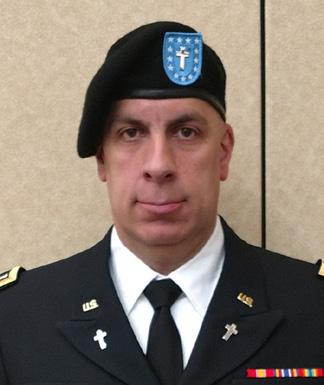


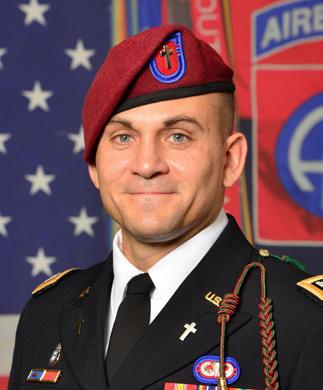
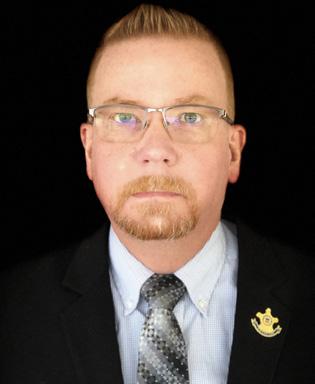
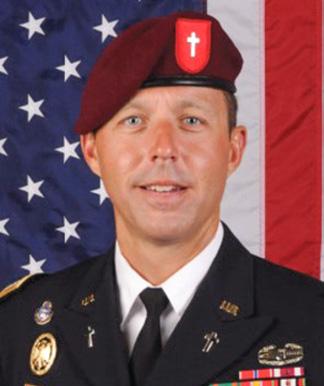

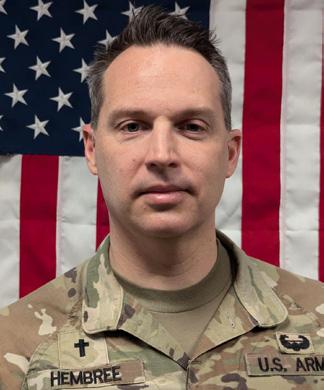
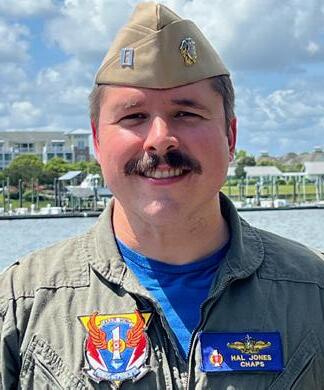
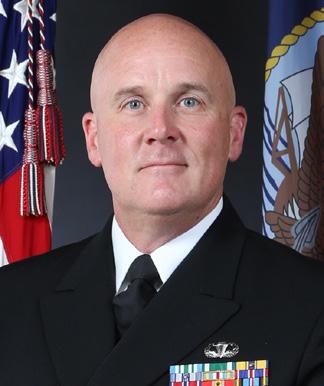
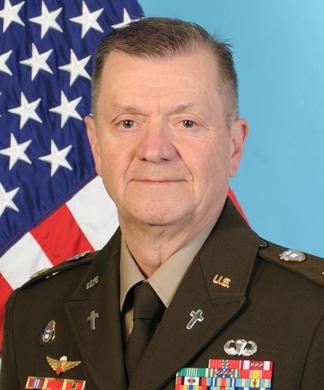

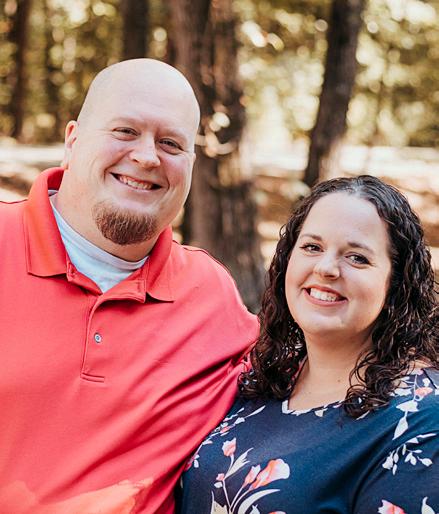
Greg and Stephanie Tucker resigned from their role as church planters with North American Ministries effective June 1, 2025. We are thankful for the Tuckers’ friendship, their love for Christ, and the encouragement they were to us during their time with NAM. Please join us as we pray God will bless them richly in their next season of ministry!
Congratulations to various NAM church planters who recently added new children to their families. Join us in praying for these parents as their homes grow and they raise their little ones to know, love, and follow the Lord.
Isabella Portillo born May 19 – Joel and Vivianna Portillo (Louisville, KY)
Daniel Feight born June 16 – Justin and Allison Feight (Jamestown, ND)
Mia Madden born June 18 – Corbin and Erica Madden (Bozeman, MT)




Master’s Men celebrated a great weekend in West Virginia at the Generation Servant Conference. Twenty young men and 11 adult leaders shared their expertise in carpentry, electrical work, and gun safety. More importantly, these mentors taught the younger men about the importance of following the Lord and being a godly servant. Interested in hosting a Generation Servant Conference for the young men in your community? Contact us at nam@nafwb.org today!


BY KEN AKERS
When Dr. Eddie Moody became the executive director of the National Association of Free Will Baptists, he introduced the slogan “Better Together.” Since then, it’s become more than a phrase; it’s become a mindset. Many of us use it to encourage fellow believers to be more involved in ministry, and it has been a rallying cry for unity across our denomination.
Free Will Baptists can serve together in countless areas, but one of the most impactful is the Master’s Men Disaster Response Team (DRT) ministry. In a world where natural disasters seem to strike with increasing frequency — tornadoes, hurricanes, earthquakes, floods — DRT volunteers step into the aftermath with tools, compassion, and a willingness to serve.
Master’s Men began developing Disaster Response Teams in 2004. Our first relief project took place in Gulfport, Mississippi, following the devastation of Hurricane Katrina. More than 50 volunteers showed up on day one, and that number grew over the following two weeks. Since then, we’ve served in nearly every Southeastern state, as far west as Oklahoma, and as far north as Ohio.
Today, we have eight fully equipped teams with trailers and tools, ready to respond quickly when disaster hits. We’ve also partnered with state organizations — like helping South Carolina get started with their own trailer — to expand our reach. But beyond logistics and equipment, the heart of this ministry is found in the stories of those who serve.
“When we started our Master’s Men chapter, we had no idea what was ahead. Then, massive flooding hit Eastern Kentucky. Over the next few months, we responded to job after job — meeting people from other states, hearing their stories, and praying with them. That first experience changed me. I was all in from then on. Everyone who volunteers feels the same. To receive a blessing, you need to be a blessing — and Master’s Men is exactly that: a blessing to those in need.”
— John Reynolds, Kentucky State Master’s Men Director
“Our team was born out of the devastating July 2022 flood in southeastern Kentucky. Men from our church went to muck out homes, and what started as a small effort quickly grew. We returned to one neighborhood more than 40 times to help rebuild four homes. Volunteers came from Ohio, Kentucky, Georgia, Alabama, South Carolina, Tennessee, and Florida. It was a beautiful picture of the Body of Christ in action — people from all walks of life coming together to help those who couldn’t help themselves. I’d encourage every able-bodied volunteer to find a local or regional DRT leader and get involved. You won’t regret it.”
— Mark Price, Ohio Valley Master’s Men DRT
“For me, it’s a privilege to serve through DRT. Whether we’re cleaning up after a flood or clearing downed trees, we often arrive when people feel hopeless. One woman in East Tennessee told me she didn’t know what to do until we showed up;


our presence gave her hope again. We work closely with local Free Will Baptist churches, which allows us to serve strategically and build relationships that often lead to ongoing ministry. And, thanks to generous donations, we’re also able to offer supplies and gift cards when needed. For many, that extra help makes all the difference.”
— Samuel McVay, DRT Volunteer
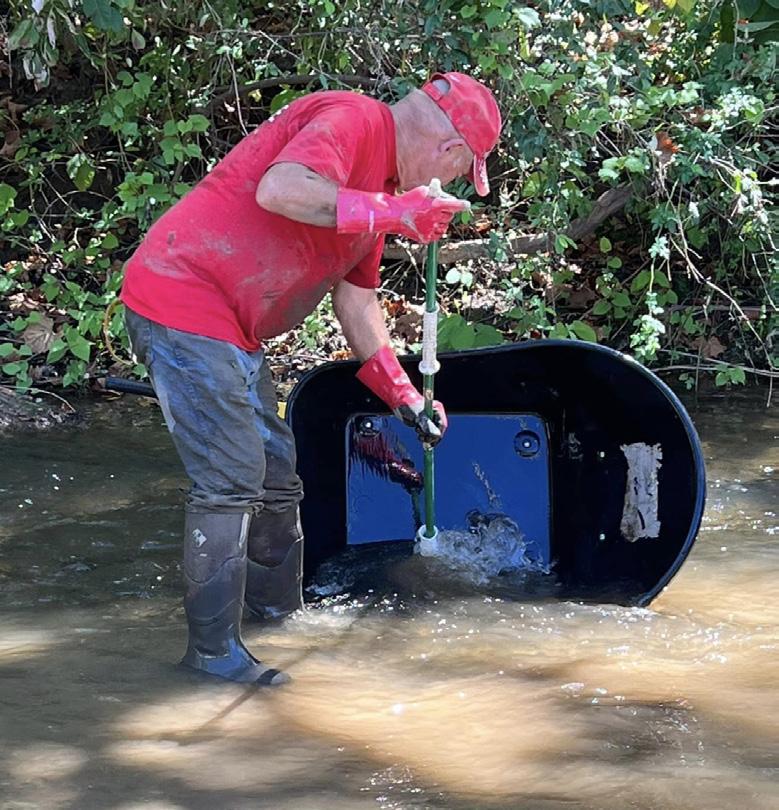
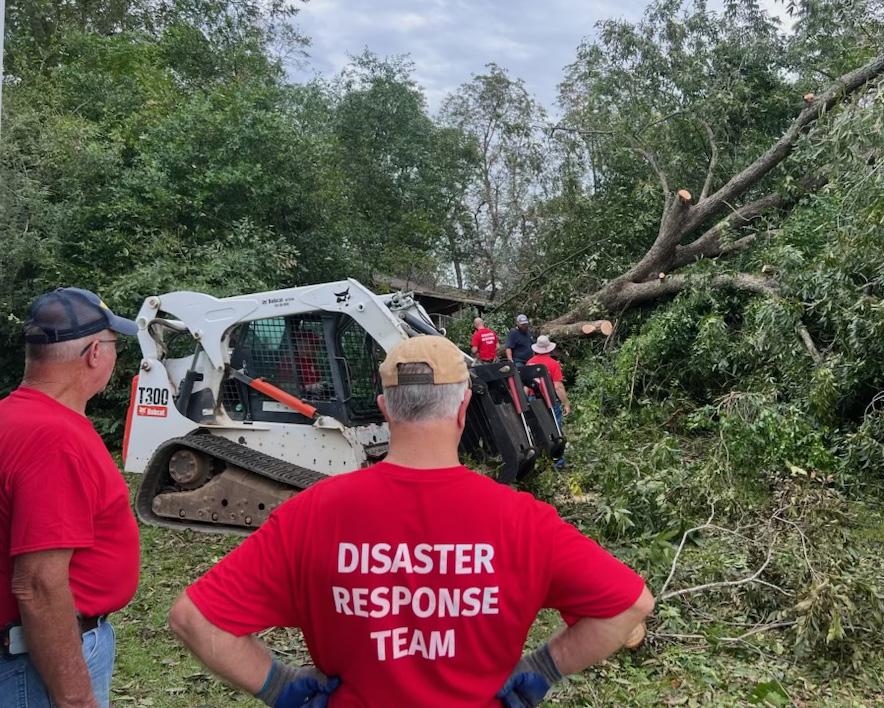

“I’ve been doing disaster relief for over ten years. One of the most moving parts of this work is when people ask, ’What do you charge?’ and we get to say, ’Nothing.’ One man in North Carolina was shocked by our answer and still tried to give me money. I later learned he wasn’t a believer, but his neighbor had been sharing Christ with him. I believe that experience made an impression — seeing Christ’s love in action. It’s moments like that, when people smile for the first time in days, that keep me going.”
— Allan Austin, DRT Volunteer
As you can see, DRT not only meets urgent physical needs, but it also deeply affects those who serve. Right now, we have active DRT teams in Oklahoma, Kentucky, Virginia, Florida, Ohio, and Tennessee, states in the process of organizing.
If you’re interested in starting a Disaster Response Team in your area, I would love to connect with you.
In the book of Nehemiah, we read about a man burdened for his broken city. He didn’t wait for someone else. He made a plan and got to work. And in Nehemiah 4:6, we find the reason for their success: “So built we the wall...for the people had a mind to work.”

That’s what DRT ministry is all about. God’s people, coming together with willing hearts and ready hands — because we truly are better together…in action.
About the Writer: Ken Akers has served as the director of Master’s Men since 2002. In 2015, the ministry became part of Free Will Baptist North American Ministries, where Ken also serves as Chief Financial Officer and oversees the Church Extension Loan Fund. To learn more about Disaster Response Teams (DRTs), visit fwbmastersmen.org/.

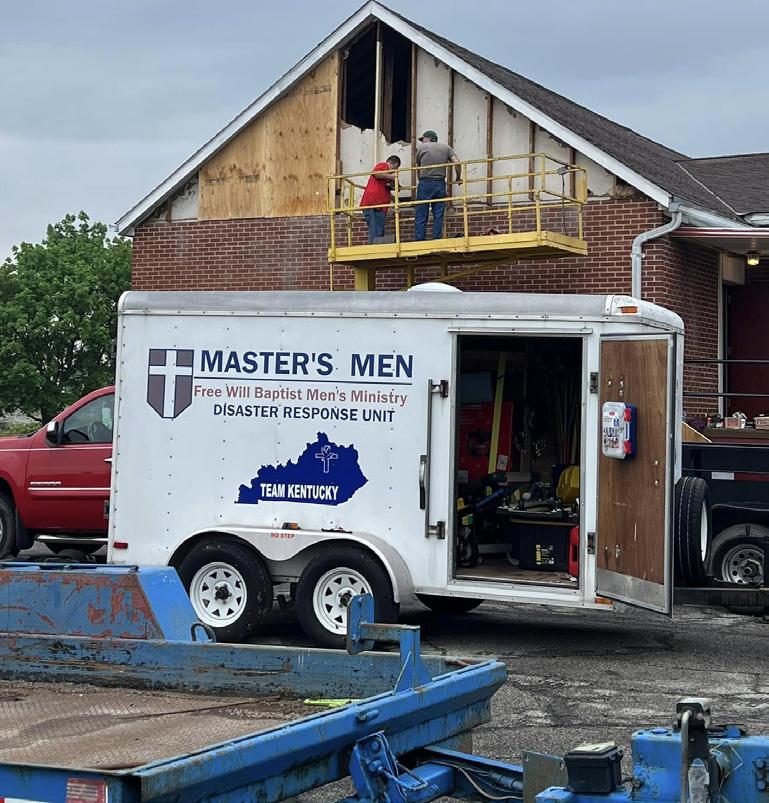
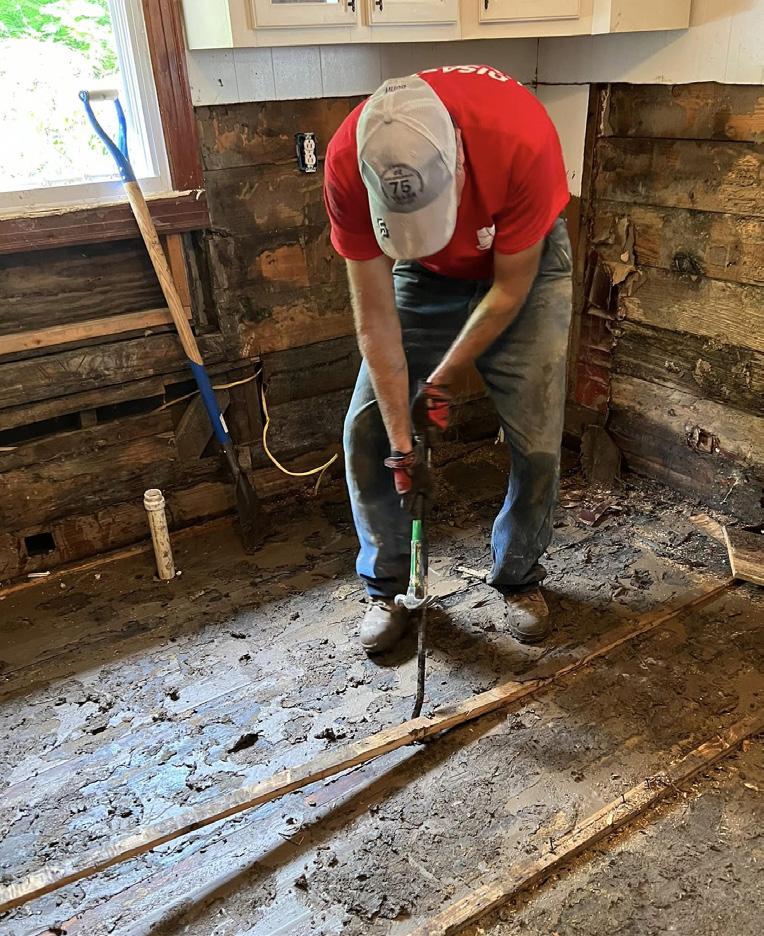

What happens when hundreds of Free Will Baptist churches across the country unite around one goal?
Big things. Eternal things.
That’s what the Mission North America Offering is all about!
This November, North American Ministries has a big goal of raising $750,000 through our annual Mission North America Offering. These funds will allow us to advance the gospel across North America through church planting, church revitalization, chaplaincy, cross-cultural ministries, Master’s Men, and more. To accomplish our mission, churches of all shapes and sizes must come together. None of us can do it alone.
North American Ministries invites every Free Will Baptist church to take part in this special annual offering Sunday, November 23, 2025. It’s an event with far-reaching impact, and we want you to be part of it!
Before we talk about money, let’s talk about mission.
Yes, the Mission North America Offering raises money, but what it really does is fuel Great Commission ministry, and that’s something we all care about. The MNA Offering directly supports NAM’s general fund, which might not sound glamorous, but is essential for Kingdom work. The general fund keeps the lights on and pays the staff who support our ministry. It covers travel, training, insurance, resources, and emergency needs. It allows us to say, “Yes!” when new opportunities come knocking and, “We’ve got you!” when our church planters face unexpected challenges. NAM’s general fund gives us the resources to encourage pastors when things get tough, and it ensures we can focus on what matters most: helping churches reach people for Christ.
In other words, the MNA Offering fuels the engine that drives our mission forward. Yes, it goes to our general fund, but our general fund directly impacts our church planters and ministry partners every day.

We live in a time when churches are closing their doors every week. While others are retreating, we’re moving forward — planting new churches, revitalizing struggling ones, and reaching people others overlook. From Alaska to Hawaii and Puerto Rico to North Dakota, your support makes a real difference.
This year alone, your gifts to the general fund helped:
• Launch multiple new church plants in under-reached areas.
• Recruit, assess, and train the largest number of new planters in our history!
• Provide training, coaching, and counseling to struggling Free Will Baptist pastors.
(Mark Your Calendar!)
WHAT: Mission North America Offering
WHEN: Sunday, November 23, 2025
WHO: Every Free Will Baptist church
WHY: To support the Kingdom work of North American Ministries
HOW: Pray, promote, and receive a special offering November 23, 2025
Resources are available at fwbnam.com/mna/, including posters, bulletin inserts, social media graphics, videos, and more.
• Support our growing number of chaplains serving in the military, hospitals, correctional facilities, and more.
• Offer resources and encouragement to cross-cultural ministers reaching the nations right here at home.
• Assist churches applying for loans through CELF to build or expand ministry space.
• Fund Master’s Men disaster relief and projects that strengthen local churches and promote discipleship among men and boys.
These aren’t just programs. They’re changed lives, new beginnings, and the powerful work of the Holy Spirit. And you are part of every changed life through your gifts!
I get it. Special offerings can feel like just another date on the church calendar, but what if this year we made the Mission North America Offering something to celebrate?
Here are some fun ways your church can participate:
• Set a Crazy Goal. Challenge your church to beat last year’s offering or to raise $5 for every person in your congregation. If you hit the goal, the pastor agrees to wear a funny outfit or take a pie to the face. Hey, whatever motivates the people!
• Give It a Theme. Challenge your people to save for a month by trading a “cup of Joe” for a “gift to God.” Other ideas are “Don’t eat out with a purpose,” or “Match the Tip.” The possibilities are endless. Just give your people an opportunity to sacrificially give and see how God works!
• Get Kids Involved. Let kids take up their own offering. Do a “penny march” on Sunday mornings in November. Decorate “mission jars” to collect change or hold a fundraising event. It’s amazing how excited kids get about giving when they feel included.

• Create a “Why We Give” Wall. Have church members share short notes about why they are excited to support North American Ministries. Post them in the lobby or on social media leading up to the offering.
• Host a Potluck With a Purpose. On Offering Sunday, plan a fellowship meal to celebrate what God is doing through NAM. Nothing brings people together like food and mission.
We’re asking every Free Will Baptist church to do two simple but powerful things: pray and give.
Please start by praying. Pray for our office staff, church planters, and chaplains. Pray for God to raise up new church planters and cross-cultural workers. Pray for the funds needed to keep pushing the mission forward. Use our Pre-Thanksgiving Days of Prayer resources and make it a priority to bring our mission before the Lord.
Then promote the offering and GIVE! Every dollar matters. Whether your church can give $200 or $20,000, your gift has Kingdom impact. When we all do our part, God multiplies the results.
Just imagine: what if every Free Will Baptist church across the country participated? Not just a few. Not just the “big” churches. What if every church gave something? The results would be game-changing.
We’d have the resources to:
• Equip even more leaders to help turn churches around.
• Launch new initiatives to strengthen our teams and help them reach people with the gospel.
• Provide stability and strength for the years ahead.
• So much more!
At North American Ministries, we know every believer has an important role to fulfill in Christ’s mission to reach the lost with the gospel. You may be called to serve as a prayer partner, financial supporter, or sending agent. God may ask you to minister as a greeter, a pastor, a teacher, a missionary, or even a church planter. Whether you are in full-time ministry or working in a secular space, He works through it all!
God will likely use you to fill many roles in your lifetime as a Christ-follower, each vitally important in His gospel work. That’s the heart behind our 2025 theme: Seek. Surrender. Serve. The Mission North America Offering isn’t just another line item in a budget. It’s an opportunity to seek what God is calling us to do, surrender to His mission, and serve as part of something far greater than ourselves. It’s our way of saying, “We believe in the gospel. We believe in the church, and we’re not done yet.”
So, let’s do this! Let’s rally together, pray boldly, give joyfully, and celebrate generously. When Free Will Baptists come together for the cause of Christ, big things happen. Let’s make this the most exciting, impactful Mission North America Offering yet!

Join North American Ministries for the Pre-Thanksgiving Days of Prayer, November 17-21.
Use the daily prayer guide below to pray intentionally in the days leading up to the Mission North America Offering November 23. As you pray, consider how God is calling you to seek His will, surrender to His call, and serve wherever He leads you.
Every believer is uniquely gifted to play a role in the Great Commission. Whether you’re called to pray, give, go, or send, your obedience matters deeply. If you’re unsure where you fit in God’s gospel work, begin by seeking the Lord. He promises those who seek Him will find Him (Luke 11:9). Today, reflect on how you’re intentionally seeking God’s will for your part in the Great Commission. Ask Him to make your role clear to you.
God often calls us beyond our comfort zones. Godly obedience occurs when we fully surrender our plans, fears, and desires to Him. Whether He calls you to lead, support, or serve behind the scenes, your willingness to trust Him and surrender is key to walking in His purpose. Today, pray and ask God what areas of your life need to be fully surrendered so you can follow God’s call wholeheartedly. Invite Him to lead you and trust His plans.
You don’t need a title or platform to serve God. Whether in a church, classroom, office, or at home, your faithful service reflects Christ and His Kingdom. Serving in small and sometimes unseen ways advances the gospel beyond our understanding. Today, reflect on how you can faithfully serve where you are. Ask God to use you to share the gospel right where you are through your words and actions.
Sending isn’t passive; it’s active obedience. Our church planters need strong senders behind them. People like you, committed to praying, encouraging, and equipping them in their gospel work. You have a part to play with enabling others to follow God’s calling across the nation and around the world. Today, ask God how you can be a sender. Pray for church planters, support chaplains, and be open to how God might call you to join them.
Support – Give Sacrificially to the Mission North America Offering
Gospel ministry requires the generous support of those willing to give. You may not be called to go, but your financial partnership enables others to go. Giving is not just a duty; it’s a Kingdom investment. Today, ask God how He is calling you to give toward building His Kingdom. Ask Him to give you a heart of generosity and make plans to give to the Mission North America Offering Sunday, November 23, through your local church, by mail, or online.
Questions about the Mission North America Offering? More information, including video, printable, and digital MNA Offering resources, is available at fwbnam.com/mna/.

I love all the local churches, both small or large, where I have had the opportunity to worship and serve. Many believers in those churches were not only formative to my own growth in Christ, but they also displayed, in their own ways, the beauty of the gospel shown in and through the local church. My affection for two specific churches is particularly strong because I grew up in one and currently serve in the other.
The church where I grew up demonstrated an incredible amount of love towards me as I was converted, answered the call to ministry, and prepared to leave and train for ministry in college. The church I attend now has a deep love for unbelievers and is always ready to care for those who need help. Moreover, they care about the truth of Scripture and its faithful application to their everyday lives.
I work at Welch College, where we encourage students to participate in acts of Christian service throughout the week and to be involved in their local churches. Often, their service relates to a local non-profit or parachurch organization. Many are involved in after-school programs, English classes, and similar opportunities. My hope is that students (and readers) would not put these various outlets at odds by affirming a false dichotomy between their everyday practice as believers and their involvement in their local church.
All of us can (and should) demonstrate our Christian faith in our workplaces, in volunteer opportunities, in our families, and in every situation so we are salt and light in the places we inhabit (Matthew 5:13-16). Nor should we forsake the assembling of believers (Hebrews 10:25), where we worship and commune with brothers and sisters in Christ.
To be clear, I have a high view of the Christian’s involvement in culture. However, I want to offer a corrective. As Christians
in the wider world, we should seek to bring about healing and hope for those affected by sin by using God’s gifting in the opportunities He provides. God calls us to participate in the spheres He has ordained, as Abraham Kuyper once put it. At the same time, Christians should be radically committed to their local churches, caring for and serving those with whom they covenant together. We should care deeply about those in the world and those in the church. For faithful Christians, the church plays a pivotal and necessary role in their lives. For that reason, I want to encourage readers to be about the task of cultivating churchmen and churchwomen.
Regardless of your views on how Church relates to culture, we should all agree God is doing something unique in and through the universal and local church. Only in the local church do people covenant together as a body of believers to spur one another on toward righteous living; to join together corporately to worship the triune God in spirit and in truth and to hear others do the same through psalms, hymns, and spiritual songs; to be fed on the Lord’s Day by the preaching of His Word; and to participate in the sacred ordinances of baptism, the Lord’s Supper, and feet washing.
By being part of a church, we have the unique opportunity to glorify God, focus on the Word, be gifted and empowered by the Spirit, and covenant together. We confess our beliefs, commit to a singular mission, and look forward to our ecclesial future... together. 1
Put another way, the church provides and promotes things
1 Gregg R. Allison, Sojourners and Strangers: The Doctrine of the Church (Wheaton: Crossway, 2012), 61.
BY

not available anywhere else. For Christians who seek to be faithful in their practice, they must rightly acknowledge the importance of the church. They must know the church offers not only opportunities for ministry but also a community of saints they cannot find anywhere else. Therefore, I encourage believers to recognize the importance of the church and seek fruitful participation.
If the church is important — and Scripture clearly states this — then believers must participate in their local church. Faithful participation is more than attendance on Sunday morning. It requires involvement in the many facets of church life. Christians should seek to worship together and to take opportunities to fellowship through Bible study groups and small group meetings. The local church member should give to missions and be involved in the evangelistic outreaches the church is seeking to facilitate.
I hope readers have a right understanding of the priority of participating in their local church. To be sure, God has called us to myriad vocations. Yet the local church garners much attention in the New Testament. Many New Testament letters were written not only to individuals but also to churches. Those written to individuals were eventually read in churches. And, of course, Christ died for the Church.
Another reason to make church participation a priority is the confidence we can have in our church work. We can be confident in our church work because of how it corresponds to our eschatological reality. Our current participation in our churches is, in many ways, a rehearsal for eternity. As we join in worship on Sundays, we are reminded we will sing in Heaven with every tribe, nation, and tongue: “Salvation to our God which
sitteth upon the throne, and unto the Lamb….Amen! Saying, Amen: Blessing, and glory, and wisdom, and thanksgiving, and honour, and power, and might, be unto our God for ever and ever. Amen” (Revelation 7:10, 12). Corporate worship — alongside other aspects of church life — is a formative exercise to prepare for our eschatological lives. Moreover, we will serve one another, in unity, as the covenant community bought by the blood of Christ.
Because the church is important and we want to encourage significant participation in the church, we must begin cultivating right sensibilities among Christians regarding their churches. We must cultivate “churchmen” or “churchwomen” — people known for regard for and participation in their churches. To be sure, this emphasis and participation requires cultivation — long, tedious work to help them care for and love the church in a manner that is consistent and right.
This cultivation certainly begins with recognizing the importance of the church and encouraging more participation. However, pastors, deacons, and ministry leaders bear the additional responsibility of creating a culture where loving the church is regarded as a beautiful, wonderful, and natural thing. We must communicate to our congregants through our speech and behavior that the church is Christ’s Bride, and she is profoundly beautiful. Moreover, let us cultivate a mindset that anticipates the coming gathering in the assembly of Heaven, made perfect by Christ, where we will worship Him together forevermore (Hebrews 12:21-24).
About the Writer: Tecumseh, Michigan, native Chris Talbot now resides in Gallatin, Tennessee, where he teaches at Welch College.
BY BARRY RAPER
2 CORINTHIANS 4:7-15
The World’s Strongest Man competition has been around since the late 1970s. Perhaps you have seen it on television. The website claims, “Since 1977, the question has been asked: ’Who is the World’s Strongest Man?’ Since then, the championship has been the final word on who is the strongest of them all.”
But can a contest really determine who is the strongest man? Sure, someone may win the title, but are they really the strongest? If you have seen some of the guys who win, there’s no doubt they are strong, but surely somebody somewhere is stronger. More than that, when it comes to being a strong man or woman, we must account for more than just physical strength. Real strength includes internal fortitude, moral courage, and self-control. And, in this passage, Paul’s words to the Corinthians makes it clear the Christian life isn’t a display of our strength at all, but an ongoing display of God working through us.
As a Christian your life is meant to showcase the power and grace of Jesus. This demonstration often comes through our weakness, frailty, and difficulties, when God’s power is made perfect in weakness.
I believe 4:7 is the key verse of the whole letter of 2 Corinthians. Paul captured in a nutshell the point he kept making throughout the letter. And he does so with a vivid illustration. We have this treasure (the ministry of the gospel) in earthen vessels. The treasure is found in a fragile clay vessel, weak and easily broken. Our mortal bodies, our fragile jars of clay, remind us the surpassing power belongs to God and not to us.
These verses hold paradoxes for the Christian. A paradox is a statement or situation that may be true but seems impossible because it contains opposing facts or characteristics — most simply, an apparent contradiction.
Here, Paul explored several paradoxes in the Christian life. The Christian experiences real hardship in life. Yet the Christian also experiences resurrection power to face these hardships. We see these contrasted sharply as we are:
• Afflicted (pressured) but not crushed. Some suggest this is a play on words in the original language, suggesting we are surrounded on every side yet still have room to maneuver.
• Perplexed — without resources, in dire straits, left wanting, embarrassed, in doubt, and at a loss — but not driven to despair or given to hopelessness where we give up altogether.
• Persecuted but not forsaken. Paul knew what it was to be hunted, on the run from those who wished to kill him, but he also experienced the promise of Jesus who said, “I will never leave you nor forsake you.”
• Struck down but not destroyed. The book of Acts recounts the story when Jews from Antioch and Iconium raised up a mob who stoned Paul, dragged him from the city, and left him for dead. But the apostle simply got up and went about his business. Can you imagine the thoughts of those who stoned him when they saw him alive and preaching the gospel again? Paul knew what it was to be struck down but not destroyed.
These verses present a crucial problem for those who preach the “prosperity gospel,” who teach that if you really have faith, you will be healthy, wealthy, and wise. That any hardship is simply traced to a lack of faith. However, this simply is not taught in the Bible as illustrated here in the life of Paul. None of us want to be afflicted, perplexed, persecuted, and cast down, but this is the paradox of the Christian experience. These challenging circumstances help us discover and display more of God’s power and grace.
On the interstate, sometimes we encounter a flashing sign that says, “Expect delays from…” along with dates and times the construction will take place. I suspect many of us ignore these signs until one day (when we are running late), we see brake lights ahead and soon find ourselves frustrated, disgusted, and upset. But we were told ahead of time.
The Christian life is somewhat like these signs. No, we do not always experience trial and hardship one right after

another. However, we have been warned ahead of time we can expect trouble. It is coming, and we should not be surprised when it happens. But we are also promised God will be with us in those moments, and we will experience Christ’s power.
Verse 10 supplies the primary principle of this passage: always carrying in my body the death of Jesus. What in the world does this mean? First, it does not mean the sacrificial death of Jesus is being repeated. Of course not! However, those who follow Jesus will experience an ongoing death of sorts.
This is illustrated in baptism, when the new convert is plunged beneath the water, signifying burial with Jesus, dying to the old way of life and being raised to walk in new life. But this isn’t a one-time event, according to Paul. We must constantly die to sin, self, and this world. Jesus made it clear anyone who follows Him must deny himself and take up his cross, a place of execution. Why? Why must we live with death? It sounds morbid.
So the life of Jesus may also be manifested in our mortal bodies (verse 10). How do we keep going in the face of the hardship we encounter in our Christian lives? Our very weakness is designed to be a demonstration of His power.
Paul acknowledged his suffering, his ongoing “death” was so the Corinthians and others like them might live. When Paul faced opposition, setbacks, and trials, he just kept on sharing the gospel. He lived with confidence in God’s promise to raise him up with Christ and one day present Paul and all his converts to Christ. What an ambition!
Through our suffering, grace extends to more and more people — this should be our goal, both as an individual earthen vessel and as a church. When our suffering leads to the salvation of others, thanksgiving is increased, and God gets the glory.
Looking ahead to chapter 12, Paul returns to this theme of suffering, describing it as his “thorn in the flesh.” After Paul begged the Lord to take his suffering away, the Lord simply reminded him His grace was sufficient for Paul because God’s power is made perfect in our weakness. As a result, Paul mused, “For when I am weak, then am I strong.”
Paul’s thorn in the flesh, whatever it was, kept him in a place of humility — a position where he was able to receive more grace. I don’t know what you may be experiencing in terms of affliction. Maybe you are perplexed and cast down right now. I also don’t know how long these things will last. But I do know this, whatever you are going through, the Lord and His power are right there with you.
I encourage you to recall those powerful words from the old hymn:
I hear the Savior say, “Thy strength indeed is small, Child of weakness, watch and pray, Find in Me thine all in all.”
In your adversity, don’t miss the beautiful paradox the Savior offers: your struggles in exchange for His strength. Turns out you don’t need to be the world’s strongest person. You simply need to know the One who is.
About the Columnist: Dr. Barry Raper is pastor of Bethel FWB Church near Ashland City, Tennessee, and teaches ministry at Welch Divinity School.
BY CAROL REID
Not every wedding ends up on America’s Funniest Home Videos, but almost all of them have a memorable incident — a groomsman faints, silly aunts are the flower girls, the preacher drops the ring. Unforgettable moments help us remember the event, usually with a smile. But in the wedding Jesus attended in John 2:1-12, the memorable event was quite embarrassing. The host ran out of wine!
Let’s review a minute before we dive deeper into this true story. In biblical times, weddings were a series of events, beginning with the betrothal that legally established the bride and groom as married. The clock started and the groom had up to a year to prepare his bride’s

home, while the bride’s family prepared her trousseau and filled her hope chest. Then the groom came (often unannounced) to collect his bride. Parading with bridesmaids to their new home, they held a simple ceremony to ask God’s blessings, then celebrated. The groom’s father hosted the week-long party where the bride and groom were blessed by guests, gifts, dancing, and feasting.
Jesus, His mother, and His disciples all had been invited to this wedding in Cana. Obviously, it was a big event. But the unthinkable happened. The host ran short of refreshments. Hosting a party without providing sufficient food or drink was not only embarrassing but also socially unacceptable. City officials could even fine people for such an offense. Maybe the wedding host underestimated how many would come or how hungry they would be. Perhaps the party was so fun, no one wanted to leave. Maybe the host was not
wealthy, and his resources gave out. We aren’t told. We only know Mary was aware of the situation and asked Jesus to help.
Was this dilemma any of Mary’s business? Scripture doesn’t answer that question (although many commentators speculate she was somehow responsible for the feast preparations). At the least, we know she was thoughtful about the need of the host, and her response was to bring it to Jesus.
Before you read about what happened next, take some time to reflect on a couple of important truths. Jesus’ presence at this wedding was an affirmation of the sanctity of marriage. Just as God blessed the first marriage in the Garden of Eden, He approved the practice in New Testament times. Both by His words (Matthew 19:5-6; Mark 10:7-9) and His actions, the Designer of marriage reaffirmed the truth a man would leave his father and mother and become one with his wife. Jesus never married, but He approved of marriage and upheld its sacred bonds.
Second, Jesus came to the wedding. He came because He was invited (John 2:2). Not everyone reading this is married; that’s clear. But if you are, have you invited Him into your marriage? Have you welcomed Him into your home and your relationship? Have you sought His blessing on the vows you have made to one another? Here’s the truth: Jesus likes to come to weddings. He wants to be part of your marriage. He wants to heal hurts and restore connections. He wants to give direction and insight for your future. He wants to protect you from temptation and strengthen you for challenges. He longs to be the center of your home, the “threefold cord” not easily broken (Ecclesiastes 4:12). He wants to promote peace, unity, and safety as you build a life together. Even if you’ve been married 75 years, He wants to be invited in. Don’t wait a minute longer. Ask Him to your wedding.
And for those who have never married, here’s what is true from God’s Word. Jesus wants to be part of your family, too. He wants you to be His chosen loved one. When you welcome Him into your home, He will abide with you, long-term, never leaving you, ever. He is a Husband (Isaiah 54:5), a Father, and a Brother to His people — to you. That’s a promise.
We get to listen in on a conversation between Jesus and His mother in John 2:3-4. Later in verse 11, we learn this was the first of Jesus’ miracles (signs), which may explain part of the puzzle here. Why did Mary bring this problem to Jesus? What
did she expect Him to do about the refreshment shortage? Did she think He would run to the store or quickly return home to their own cupboard? Did she think He had resources to provide more wine? Did she expect a miracle?
Before His public ministry began, do you think Jesus had provided in such ways in His childhood home? We don’t know, of course. But Mary understood Jesus’ unique role as God’s Son. She had been pondering things in her heart for decades (Luke 2:19), connecting the dots from Scripture, the angels’ words, the prophecies, the preaching of John the Baptist, and the character of her Son.
Jesus responded to His mother in a way our twenty-first century reading easily could misinterpret (verse 4). He was not disrespectful. Addressing a female as “woman” could be said with indignation, but in that day, could also be said with great respect and affection, as we assume here. Notice He addressed Mary this way again at the cross, when He entrusted her care to His disciple John (John 19:26).
Verse 4 denotes Jesus’ first mention of “His hour,” but we know He was ever conscious of His mission on earth. From childhood to final breath (and beyond), He was under orders from the Heavenly Father, sent to redeem mankind. God’s timing was impeccable. At just the right time, Jesus came. All history revolves around His completed sacrifice and resurrection. He again spoke of “His hour” in John 17:1 as He prayed for the disciples, recognizing what lay ahead for Him.
Mary certainly did two things right. First, she took the problem straight to Jesus. We should make it a practice to do the same. Whatever problem, whatever need, whatever hardship you face, go to Jesus with it. Hand it over. Tell Him what you need. Tell Him what others need. Place it in His almighty, all-knowing, all-powerful hands and let Him handle it.
Second, she encouraged others to obey Him. When we read her instructions to the servants to do whatever Jesus told them, it sounds so simple, but we have met the complications of full obedience many times. Just do what He says. This is acting in faith, not always understanding what or why. Obedience rejects human wisdom, turns from popular opinion, and risks trusting Him — stepping from the boat onto choppy waves in the dark.
Jesus gave simple instructions to the servants. Take six stone waterpots and fill them with water to the very top. It is likely the water was transported from the well and poured into these waterpots. Each held between 20 and 30 gallons. That’s a lot of trips to the well and a lot of water. “Do whatever He tells you.”
When we ask Jesus to meet our needs, He doesn’t skimp. He doesn’t do a half-way job. He doesn’t just get by. He does exceedingly abundantly above all that we ask or think (Ephesians 3:20). Our cups overflow (Psalm 23:5). He is the God of plenty. He satisfies the thirsty soul. And He provided on this occasion.
The servants served the new wine for the approval of the master of the feast (think caterer). Then the bridegroom had a taste and said, in essence, “Wow!” We have no clue about how this beverage looked or tasted, but the conclusion was the wine Jesus provided was better than what had been served first. Jesus makes everything better!
He is the God of plenty. He satisfies the thirsty soul.
We try. We work. We aim for the best. But His touch changes well-water into the very best. He can do the impossible. Maybe you’re struggling with parenting. You’ve read the books and listened to the podcasts. You’ve hung chore lists, given stickers, and threatened consequences. You’ve battled strong wills and bad attitudes and glazed eyes. But when Jesus takes over, you begin to see real improvement.
Maybe your work situation is grueling. The boss is unfair, the assignments are piling up, the coworkers are unengaged, and the paycheck is too skimpy. But when Jesus takes over, the lights come on, and you know the next step to take.
Maybe your church is dying. You’ve taught and invited and swept and sung and given — but you aren’t seeing growth. Your pastor is discouraged, and your kids are complaining. Then Jesus turns it around by moving in and doing what only He can do.
We serve a God who specializes in amazing transformations. Don’t ever think the situation is hopeless. Don’t give up. Give it to Him and let Him work a miracle. That’s what Jesus does. He takes nothing and makes something. He takes little and makes it more than enough. He takes average and makes it extra special. Just give Him what you have. He can do the rest.
This miracle also reminds us the best is yet to come. Even if your life is great right now, better days are ahead. Maybe you
have money in the bank and no leaks in the roof, and you love your life…wonderful! But the best is yet to come!
For most of us, though, this is an encouraging truth to which we can cling. Heaven is going to be better. Heartaches and headaches will be no more. Health struggles, limited finances, problems with family, work, neighbors, friends, church — all will pass away, and God will give us the most beautiful, brilliant, magnificent, perfect future. Forget average. Forget ordinary. The best is yet to come!
The wedding feast was salvaged and the host’s reputation protected. The wine Jesus provided was delicious. But that’s not the point of John 2, is it? Verse 11 is the key. It’s really all about Jesus. Here’s a glimpse of who He is and why He came. Here’s a peek at His glory and power. And this was only the beginning! The spotlight turned to Jesus Christ — God in human flesh — and His earthly mission. The miracles provided confirmation, evidence He is the Messiah. His glory as the Sovereign Creator who satisfies our needs was revealed in the kitchen of the wedding feast at Cana.
How did the disciples respond? Obviously, they were already following Jesus and listening to His teaching. But this miracle marked a turning point; from this point forward, they believed (verse 11b). Can you imagine the wide eyes, open mouths, and racing pulses when they realized what happened? This was more than they could comprehend. They responded in humble belief as they realized they were in the presence of God Himself. What about us? When we see the powerful hand of God at work, our faith grows stronger. We may not be standing at the stone pots, but we’ve seen loved ones at the altar, medical miracles, relationships restored, hearts mended, peace poured out. We’ve been witnesses to new births — physical and spiritual. We know the power of God to forgive sin and transform lives. We glimpse His glory, and we believe.
Only Jesus can satisfy our deepest needs. Only Jesus can pay the sin debt we owe. Only Jesus can provide peace and joy that overcomes the circumstances of this world. And our God has given His promise to supply all our needs by His riches in Christ Jesus (Philippians 4:19). Hallelujah!
About the Writer: Carol Reid lives in Old Hickory, Tennessee, works on the curriculum team at D6 Family Ministry, and serves faithfully at The Donelson Fellowship. She enjoys her children and grandchildren, assorted crafts, bargain shopping, and puzzles of all kinds.
BY REBEKAH TALBOT
Oh, how I would have loved to attend the wedding at Cana (John 2:1-2). Weddings are such joyful occasions. Can you imagine attending one where Jesus was a guest? The happiness of His disciples celebrating, the crowd’s amazement at the miracle performed — how wonderful to see this take place. I’m not sure who this couple was, but I assume they forever felt it an honor Jesus celebrated with them.
For the past eight years, I have had the honor of capturing incredible memories like these. I stumbled into wedding photography after a friend asked if I would capture her wedding day. (She was very trusting, because I had no prior wedding photography experience.) However, I was so honored to be part of that day. Motivated by the joy I experienced celebrating her day, I went on to capture memories for many couples on one of the most important days in their lives.
Wedding photography today is far different than a few decades ago. Couples require various editing styles, posed portraits, 12-hour wedding days, and more. The years when a few portraits of the ceremony and family were sufficient are long gone. These days, a photographer is embedded with the families all day, walking with them through some of the most intimate moments of their lives.
As a Christian, I approach wedding photography differently from my non-believing peers. Primarily, the wedding day is about the couple’s covenant before God. While the florals may be gorgeous, the bride’s dress stunning, and the reception filled with fun, food, and laughter, the day’s focus is the marriage covenant. My goal as the photographer is to display this covenant beautifully in a way that honors its significance. While I take many photos

outside of the ceremony, each one points to the larger story and primary purpose of the day. Using the gifts God has given me, I can create beautiful, meaningful photographs that point to His role in the covenant.
As a Christian, I also approach wedding photography as an act of service. Some photographers believe a wedding day is about their portfolio or showcasing their talents. But rather than viewing each wedding as a platform for self-promotion, I approach each wedding as an opportunity to serve the couple.
This requires me to ask: What is meaningful to the couple? How can the gifts I bring best serve them and those they love? What beauty can I showcase that helps tell their story? How does my body language and presence help calm nerves and pinpoint the true meaning of the day? This helps me create my best work for their benefit.
Often, wedding photographers find themselves in scenarios outside their responsibilities. I have pinned boutonnieres, wiped away tears, searched for and found relatives, and performed many other odd tasks. These small moments of service let my couples see I care about them. I’m not just a photographer; I am a friend placed there to serve them in the various ways God allows.
I’ve noticed you can create better photographs by paying closer attention to those around you. Frequently, the photos a couple loves most are not the ones they expected but the ones that capture a special moment with a parent or laughing with guests. A candid glimpse into the emotion of the day. After a loved one has passed, family images become especially important. A simple but meaningful memory becomes precious to a grieving family.
God has used photography to help me befriend and serve families I would not have known otherwise. Wedding days are very personal. Closest family and friends are gathered, and I — a complete stranger — am in their midst all day. Some couples and families have continued relationships with me after the wedding, which allows for friendships and opens doors to share the gospel.
It can be overwhelming to be responsible for capturing oncein-a-lifetime moments. Weddings constantly remind me of my need to rely on God and others for help. God is my Provider.

Weddings constantly remind me of my need to rely on God and others for help. God is my Provider.
He gives perspective when serving becomes challenging. Confidence in my God-given skills helps me focus on glorifying Him, not on pleasing people.
As a wedding photographer, first and foremost, pray for your couples. Pray before the wedding day and in the days after. Let them know you are rooting for the marriage, not just their wedding. Approach each opportunity with a servant’s heart. Remember the day isn’t about you, but use your gifts and talents to best capture their day and especially their beautiful covenant before God. Find ways to give back and be generous, whether through extra time with them before the wedding day or by jumping in to help with things that really aren’t your job. In these ways, you can glorify God and minister to others in a way that points to Him every time they see their pictures.
About the Writer: Rebekah Talbot is a stay-at-home mom and small business owner. When she’s not chasing one of her young boys, she enjoys spending time at parks, hiking, and making music.
BY RON HUNTER JR., PH.D.
Recently, a close pastor friend — a respected leader and lifelong learner — asked me a deceptively simple question: “If you could only recommend ten books for every pastor’s library (excluding commentaries and reference tools), what would they be?”
I loved the question. And I loved that he wasn’t just asking me; he was polling several trusted voices. That’s the mark of a teachable leader.
But here’s the tension: Which type of pastor? Senior? Student? Family? Children’s? Are we talking about personal growth or professional skills? Sermon prep or soul care? To be helpful, I decided my list should stretch across both spiritual leadership and personal development, like a good college education that blends general studies with your major.
I also avoided books published by our own team to prevent bias and stayed away from pure theology or sermon prep texts. These books had to shape the whole leader — mind, heart, and habits. So, here’s how my list shook out — not in order, and not in bullet points (on purpose, so keep reading):
No surprise, I start with leadership. Spiritual Leadership by J. Oswald Sanders remains a timeless leadership primer (or substitute Lead by Paul David Tripp for a more modern take). A second recommendation, Canoeing the Mountains by Tod Bolsinger, speaks to adaptive leadership when ministry heads into uncharted territory.
Next, How We Got to Now by Steven Johnson will stretch you to see both convergent and divergent paths in how big ideas develop. I would also include Rembrandt Is in the Wind by Russ Ramsey — a stunning reminder that God hardwired beauty and story into Scripture, not just theology. Every leader needs perspective, so I’d toss in Charlotte’s Web by E.B. White. Yes, a children’s book because few stories model selflessness, introspection, and friendship better.
For the biography category, pick one of your own or consider three options: The Life of David Brainerd by Jonathan Edwards, King: A Life by Jonathan Eig, or Thomas Jefferson: The Art of Power by Jon Meacham. Stories shape us more than manuals.
Developing Emotionally Mature Leaders by Aubrey Malphurs makes emotional intelligence both practical and spiritual. On

the personal side, Love and Respect by Emerson Eggerichs helps every pastor maintain the health of their marriage. Intellectually, stretch yourself with Masterpieces of World Philosophy by Frank Magill (out of print but worth hunting down used).
Finally, choose one of the following apologetic works to build confidence in your faith: The Pursuit of God by A.W. Tozer, The Divine Conspiracy by Dallas Willard, Mere Christianity by C. S. Lewis, or Mama Bear Apologetics by Hillary Morgan Ferrer (for worldview defense in a post-Christian culture).
Yes, I stretched the “Top Ten” rule. But ask me again next year, and the list might flex again. Great leaders never stop learning.
Now it’s your turn. What’s on your "Top Ten" list? I’d love to hear from you.
About the Columnist: Ron Hunter Jr. has a Ph.D. in leadership and is CEO of D6 Family Ministry. You may contact him at ron.hunter@d6family.com.
“Reading furnishes the mind only with materials of knowledge; it is thinking that makes what we read ours.”
—John Locke
BY RON HUNTER JR., PH.D.

In 1870, when construction began on the Brooklyn Bridge, most people believed it was impossible. The East River separated Brooklyn from Manhattan, forcing people to rely on unreliable ferries (especially problematic in winter). Yet, for decades, most accepted the disconnect as normal.
Visionaries like John Roebling, the original chief engineer, thought differently. After his untimely death, his son Washington took over, only to become paralyzed and bedridden from illness soon after. But Washington didn’t give up. From his apartment window, he developed a communication system with his wife, Emily, who became his voice on the construction site. For over a decade, Emily delivered his instructions — note by note, calculation by calculation — until the bridge opened in 1883, standing as a monument to vision, teamwork, and sacrificial commitment.
In many ways, the journey of D6 Family Ministry over this past year reflects the same determination, fighting through challenges to build a bridge connecting churches to homes in intergenerational discipleship.
A year ago, we stood at a crossroads, challenging our Free Will Baptist family to help sustain D6 Family Ministry for the future of generational discipleship. The financial strain caused by COVID-19, the closure of over 240 churches, and rising costs across every area of ministry had created a storm we could no longer weather alone.
You prayed. You gave. You partnered.
And because of your faithfulness, combined with deep internal restructuring, D6 has gained steady ground. Our story isn’t just about survival; it’s also about growth, innovation, and expanding our reach into homes, churches, and nations.
After last year’s appeal, our leadership team made more than $800,000 in budget adjustments. Every department faced tough cuts. We consolidated roles, delayed hiring, and streamlined programs — but never at the expense of our core mission or product quality.
These difficult decisions made D6 leaner, more focused, and determined to press forward. However, we’ve now reached a critical threshold. We must maintain a minimum staffing level to continue producing fresh, high-quality content. Further reductions would compromise both ministry health and the excellence people expect from our resources.
Our strategy moving forward is about building for long-term strength. We also made strategic investments in tools, software, and infrastructure — steps to multiply our ministry impact for years to come.
BEYOND SUNDAY
One of the most exciting new chapters in our journey is the acquisition of D6 HomePoint. Designed to help churches strengthen connections between Sunday and the rest of the week, HomePoint puts discipleship tools directly into the hands of parents, grandparents, and mentors.
D6 HomePoint is not a curriculum but a drop-by resource center offering easy-to-follow guides on life’s pain points and next stages. People can browse topics and take what they need without explanation or embarrassment. Every pocket paper is free, and churches can also offer books for purchase on the most requested topics.
We’re thrilled to announce that Connect Church of Russellville, Arkansas, under the leadership of Blaine Rogers and his dynamic staff, will serve as the D6 HomePoint leadership team. Connect Church models Deuteronomy 6 in action by helping families engage faith conversations at home with creativity and consistency. Blaine’s team will produce new content and an annual sermon series promotional module.
Through D6 HomePoint, churches will gain downloadable resources, seasonal campaigns, and practical tools to help every home become a center for discipleship. This initiative pushes D6 beyond the curriculum and into the daily rhythms of family life and felt needs.
As we celebrate what God is doing, we’re also looking ahead. Behind the scenes, our editorial and theological teams are working hard on the next major edition of the D6 Curriculum. Slated for release in 2026, it will be the best-written material we have ever produced, with connect activities that make the class and home more engaging.
This forthcoming edition will build on the strong biblical foundations you’ve trusted for years while incorporating fresh design, updated lesson structures, and enhanced tools for leaders and families. We’re listening closely to pastors, teachers, and families to ensure the next generation of D6 resources
meets the needs of a changing culture without compromising biblical truth.
More updates will come soon, but you can be confident: D6 remains committed to delivering theologically-sound, agealigned discipleship tools that work both at church and at home.
D6 Family Ministry continues to grow globally. D6 International is active in Singapore, Malaysia, Japan, Thailand, South Korea, Indonesia, France, and the United States with conversations underway with other nations.
In July, we celebrated ten years of D6 Singapore, where pastors and parents gathered to reflect on a decade of equipping churches for generational discipleship. Each year, our international conferences draw leaders from 100 to 300 churches within their respective countries, with an average investment of about $5,000 annually per event. We’re watching leaders across cultures take the timeless truth of Deuteronomy 6 and apply it in their unique ministry contexts, creating a legacy impact that will influence thousands of families for years to come.
Our international partners remind us: the call to disciple the next generation transcends language and geography. When you give to D6, you not only support discipleship through curriculum — you help fuel a global movement reaching families across continents.
To all who gave last year and this year, we are deeply grateful. Your generosity gave us breathing room when we needed it most. Some gave one-time gifts, others became monthly partners, and still others added D6 Family Ministry to the church budget for the first time. Your gifts helped stabilize key areas, including curriculum production, book publishing, international reach, and donor relations.
Over the next three to four years, our goal is to reach 10–20% of our annual budget through giving. Growth in giving doesn’t increase our budget. We grow our budget only through increased sales. But giving sustains and stabilizes the ministry we’re already doing.
What if the Roeblings had given up when the bridge project got tough? Thankfully, the city, workers, and supporters recognized the need to connect Brooklyn and Manhattan. Today, we see a similar need: to connect church and home, parents and kids, and believers with other believers — bridging the gaps that weaken discipleship.
Big gifts fuel big steps, but faithful, consistent giving from many builds long-term stability.
At its core, D6 Family Ministry remains laser-focused on helping churches and homes build believers grounded in Deuteronomy 6:5-7 and the generational vision of Psalm 78:1-7. The challenges are real, but so is the impact. Together, we are shaping future generations to love and follow Christ.
Our D6 team continues working hard as bridge builders to make necessary changes and progress. But now, we need a broader base of partners who believe in the power of biblical discipleship.
If you love what D6 represents, or if you’ve seen the fruit of this ministry in your church, family, or denomination, we know you have appreciation for what we do. Now, we invite you to move from appreciation to intentional investment. Please join us in this next chapter.
Let’s be candid: It’s often easier to allocate church funds than to give personally. But lasting change happens when both happen side by side.
• Purchase both “at church” curriculum and “at home” devotionals.
• Add D6 to your church budget.
• Encourage your congregation or classes to give. (They could adopt a country.)
• Lead by example with personal support.
Together, let’s build a foundation to equip church es and homes for decades to come.
Like the Brooklyn Bridge, this ministry stands as a testament to what faithful visionaries, persistent workers, and determined partners can accomplish: spanning generations with the gospel. The question now is simple: Will you and the next generation in your church benefit from the bridges we’re building?
It’s time to move from watching to walking — from appreciation to action — and bridge the gap between church and home.
About the Writer: Ron Hunter Jr. is the CEO of D6 Family Ministry. You may contact him at ron.hunter@d6family.com.

Bondoukou, Côte d’Ivoire — The International Fellowship of Free Will Baptist Churches (IFOFWBC) met in Bondoukou, Ivory Coast, August 5-9, 2025. IFOFWBC is designed to bring the global FWB community together, providing identity with a larger group, fellowship, mutual edification and encouragement, and information about the work FWBs are doing worldwide.

Thirty people, representing 15 countries, attended. An additional 40-plus Ivorian brothers and sisters attended as hosts. Delegates had an opportunity to present the work
in their country, celebrating victories and praying for the challenges. Countries represented included Argentina, Brazil, Bulgaria, Cuba, France, India, Ivory Coast, Japan, Philippines, Spain, Uganda, and the United States.
Evening sessions unpacked the theme “From One Generation to Another,” using the book of 2 Timothy as the Scripture.
During Friday afternoon’s business meeting, associations of two new countries were accepted into membership along with local churches in two countries where no association exists. The country of Brazil will host the next meeting in 2028. Attendees selected Panama to host in 2031.
A new slate of officers was elected for a three-year term, reflecting the passing of the baton to a new generation of leaders.
Kansas City, Missouri — On July 20, 2025, the IM board met during the National Association in Kansas, City, Missouri. Around the conference room table, they illustrated the convention’s theme, “Accept the Mission.”
The board rejoiced over the new partnership with a non-profit organization (NGO) in North Africa. The partner NGO takes community development and outreach to local people groups and strengthens and expands communities of faith among Muslim-majority cultures.
The board accepted a retirement letter from Jeff and Susana Turnbough, who faithfully served with IM for 44 years and retired at the end of September. “We are grateful for their love for the people of Spain and their passion for training leaders through the ministry of the International Training Alliance, a partner of IM,” stated Curt Holland, director of field ministry personnel.
Even as the Turnboughs retire, the board appointed Cody and Lauren Herren, ETEAM coordinators since 2023, to serve in France. Leslie Nichols, director of mobilization, affirmed, “We are incredibly grateful for the Herrens’ diligent and intentional impact on the ETEAM program — transforming it into what it is today. We prayerfully look forward to seeing how the Lord will use them in their next
chapter of ministry in France!”
During the Wednesday evening missions service, Cody and Lauren, along with all new and stateside missionaries and field workers, participated in the parade of nations and were commissioned by the denomination. “What an amazing opportunity for the thousands of Free Will Baptists in the convention center — and hundreds watching worldwide — to experience sending out laborers into the harvest fields,” declared General Director Clint Morgan
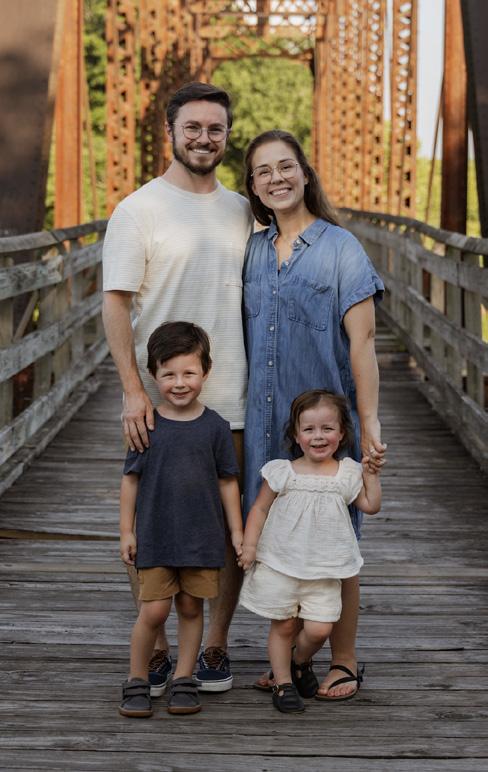
Don Matchett, director of development, stated, “Thank you for your continued faithful support and prayers for missionaries and partnerships. Thank you for accepting the mission of laboring with the Body of Christ to fulfill the Great Commission!”
Antioch, Tennessee — Jacklyn Grizzle Reed accepted Director of Mobilization Leslie Nichol’s invitation to be ETEAM coordinator. Jacklyn replaces Lauren Herren who, with her husband Cody, was appointed to missionary service in July.
Jacklyn served on ETEAMs in 2015 and 2016. “Through ETEAM,” Jacklyn said, “God opened my eyes to His heart for the nations and made it clear: I was called to be part of the Great Commission.”
Not sensing a call to overseas service, she desired to help send missionaries. Jacklyn attended Welch College and studied business, “not because I dreamed of spreadsheets, but because I dreamed of supporting missionaries.” She served on a College Missions Program (CMP) team during college. After graduation, she worked for IM in the finance department, “doing exactly what God had asked of me: helping send out missionaries,” Jacklyn testified. A year
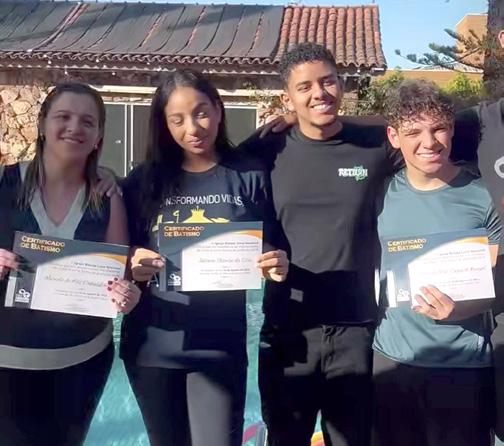
Brazil — The National FWB Church, located in Brazil’s national capital, Brasília, baptized 11 people Saturday, August 16.
France — The St. Sébastien FWB Church in France baptized one person July 3. Missionary Michelle Chereau wrote: "We praise the Lord for E’s life and testimony. We had a full house where we could host his family and friends, some of whom were not Christians."
France — The St. Nazaire FWB Church in France baptized seven people July 6.
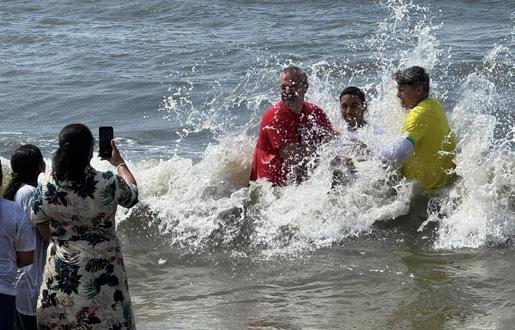
India — Sunday, August 10, IM partners in India baptized five people at 4 a.m. to avoid problems with radical Hindus. Director of Global Partnerships Kenneth Eagleton urged: “Pray for those baptized and for the pastor.”
later, she and her husband moved to North Carolina for his new position as a kids’ pastor.
In 2024, the Reeds led an ETEAM to Chicago. Jacklyn called it “a full-circle moment, pouring into students just like others had poured into me years earlier.”

“ETEAM changed my life — and I believe in it with all my heart. It’s more than a mission trip; it’s a launching pad for life transformation,” Jacklyn explained. “I’m honored, humbled, and deeply grateful to be a small part of this incredible story. May God use ETEAM for His glory and for the good of generations to come.”
France — The Mosaïque FWB Church in Nantes, France, baptized two people Sunday, July 10.

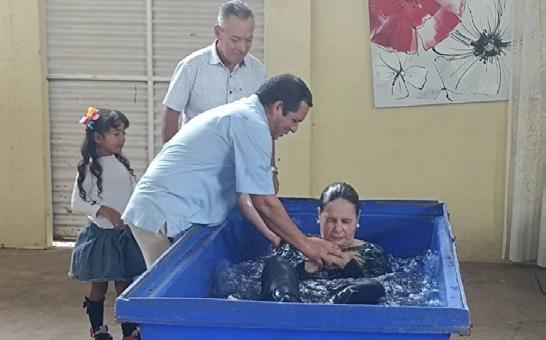
Panama — A lady was baptized at the Chitré FWB Church in Panama July 6.
Cuba — IBL Nazareth Church in San Francisco, Havana, Cuba, celebrated its 71st anniversary June 22. Founded by pioneer missionary Pop Willey, the church saw ten people baptized during the celebration.
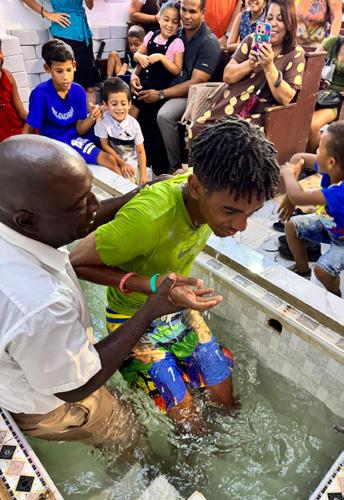
BY CLINT MORGAN
In just ten short years, the National Association of Free Will Baptists will celebrate its 100th anniversary as an organized movement. One of the first actions taken by the newly-formed denomination was a bold step into world missions — and IM began. Since that pivotal 1935 gathering of visionary Free Will Baptist pastors and leaders in Nashville, Tennessee, and the commissioning of Laura Belle Barnard as the first IM missionary, our denomination has built a rich legacy grounded in an unwavering commitment to labor with the Body of Christ in fulfilling the Great Commission.
Over the past nine decades, IM has commissioned and sent more than 500 missionaries. Each one carried the gospel message of Christ’s love to the nations, sowing seeds of truth, salvation, and the promise of eternal life.
Psalm 145:4 proclaims, “One generation shall praise thy works to another, and shall declare thy mighty acts.” The psalmist underscored our privilege as believers to proclaim God’s goodness, faithfulness, and mighty deeds. It is my honor to share some of God’s mighty acts from our fields of work. These numbers are more than statistics; they reflect meaningful progress in advancing the gospel worldwide.
In 2024, 5,175 individuals responded to the call for salvation. We celebrate and praise God for every transformed life.
It is our deep desire to see every new convert discipled and growing as a faithful follower of Christ. A vital step in this journey is baptism — the public declaration of faith. We praise His name for 2,976 believers who proclaimed new life in Christ through baptism last year.
While we rejoice in what God has done, our mission is far from complete. The gospel is for all people, everywhere.
Our commitment to taking the gospel to all nations is reflected
in our growing number of outreach locations. Current field data shows 312 active preaching points and mission works. We pray each of these works will take root, grow strong, and branch out as beacons of hope for the unreached.
A poetic and powerful expression in Psalm 113:3 declares, “From the rising of the sun unto the going down of the same the Lord’s name is to be praised.” Each Sunday, from sunrise to sunset, believers gather in Free Will Baptist-affiliated churches outside North America. In 2024, these churches recorded an average weekly attendance of 52,096 people. What a cause for rejoicing and praising His name!
In 2024, God also blessed IM in extraordinary ways financially. It was a record-breaking year, made possible by the consistent support of our Free Will Baptist churches and individuals. Through this consistent support, God moved and performed three mighty acts:
• The 2024 WMO was our largest of the last ten years. You gave $792,358!
• Our income for 2024 was over $10 million.
• To my knowledge, for the first time in IM history, all missionary accounts ended the year in the black without any subsidies.
And the blessings continue! The first two months of 2025 we saw historic income levels.
Despite these remarkable achievements, it would be an incomplete (and dishonest) picture if I did not share one financial concern.
Imagine a vibrant green sheet of paper symbolizing growth, but with a single black dot. A slight blemish. I’ve talked a great deal about “the green.” But let’s talk just a moment about the tiny, but eye-catching blemish. The black dot represents the IM General Fund.
It’s impossible to properly present the impact the General Fund has on IM ministries. The General Fund is essential to the proper functioning of the Mission — both on our fields and in the office. While it supports our stateside ministry team, its impact extends far beyond our office in Antioch, Tennessee.
Consider these key areas funded by the General Fund:
• Recruiting and Screening: Can you seriously imagine IM being unable to actively recruit and evaluate candidates? We must ensure they are physically, emotionally, and, most of all, spiritually ready to serve. I don’t think you want us to send out people who are unqualified. The General Fund is vital to this ministry at IM.
• Training: It would be unthinkable for us to send out missionaries unprepared to face and properly deal with the challenges of fundraising. Or who are not as ready as possible for cross-cultural immersion. Or people not on solid theological ground. IM’s training efforts are undergirded by the General Fund.
• Logistics: A missionary’s daily schedule can easily be cluttered with logistical matters like processing account donations, securing insurance, obtaining legal documentations, acquiring travel documents, sending and receiving communications, and much more. The General Fund helps carry the bulk of this load.
• Missionary Care: Would it not trouble you to know a missionary facing life-changing challenges did not have professional member care available? Life on the mission
field is physically, emotionally, and spiritually demanding. Through the General Fund, IM offers exceptional care, counseling, and support for missionaries and their families. Additionally, the IM stateside ministry team offers emotional and spiritual support.
• Promotion: I believe our promotional materials and programs are some of the best anywhere. The IM stateside ministry team sends out materials and updates designed to inform, inspire, and engage. Many of you love our missionary prayer cards, maps, children’s stories, and other materials. The cost of design and preparation are covered primarily by the General Fund.
• Partnership: Partnerships with national leaders and churches in countries where we no longer have missionaries continue the mission of legacy missionaries. Do we want to abandon these brothers and sisters? Do we want to stop opening new fields and partnering with national believers? Currently, IM missionaries live and serve in seven countries. By working with our partners, we have an impact in 38 countries! Continuing these partnerships and expanding into new areas is impossible without the General Fund.
• Mobilization: How can we possibly continue the mission if we aren’t actively mobilizing the next generation? The Hanna Project, ETEAM, College Missions Program, and other mobilization efforts expose scores of people to cross-cultural ministries each year. From these, some answer the call to go. The General Fund fuels our mobilization effort.
Without these critical functions, IM would grind to a halt. When you give to the IM General Fund, it’s not just an expense; it’s an investment!
We desire to use your investment wisely, so we plan and evaluate. After much prayer, discussion, and careful analysis, the Leadership Team set

three major goals for IM to pursue over the next ten years. This long-distance look calls us to walk by faith toward a future only God can fully bring into view.
In broad strokes, I present our Horizon Goals: 2025 – 2035.
See 100 New Missionaries Commissioned by the IM Board.
We are praying and working toward the commissioning of 100 new missionaries before the end of 2035. Programs like ETEAM and College Missions Program lead many young people to discover and embrace their roles in fulfilling the Great Commission. Seeing this goal realized will absolutely be a God thing.
Currently, 113 IM-commissioned missionaries serve. What gives us the boldness to believe we can send another 100 missionaries in just ten years? Because with our God, all things are possible!

As we recruit and commission 100 new missionaries, it is imperative we have the finances to send them. To support this anticipated growth, we established three critical financial targets:
• Reach and sustain a minimum annual total of $1 million for the World Missions Offering (WMO).
• Acquire $3 million for the Grow Endowment. The annual earnings will provide seed money for launching new missionaries.
• Raise $10 million for the Cornerstone Endowment. The interest produced will provide long-term, sustainable income for the General Fund.
No phenomenal giving patterns guarantee this is doable. In fact, the odds seem stacked against such an endeavor. But with God’s intervention, all things are possible. These are not just financial goals; they are faith goals.
As mentioned previously, over 50,000 Free Will Baptists gather each week in churches outside North America. Our
third goal is to more than double that number to 120,000. This overarching goal includes:
• Sharing the gospel with one million unbelievers through the efforts of our missionaries and partners.
• Planting 1,000 new churches as new believers gather as part of the Body of Christ.
• Seeing 120,000 worshipers each week in our global churches.
These goals are not ends within themselves. They are about seeing the gospel shared, lives transformed, communities changed, and His name glorified.
Reaching the Horizon Goals will require a Spirit-directed, allhands-on-deck mentality. We must plant, water, and persevere. Ultimately, we know God will bring the harvest as He has done throughout history.
The early church had no comfortable means of transportation. They had no high-speed communication devices, no social media, no livestreams. They had no 401(k)s. They lived in a harsh and demanding world. Yet, they turned their world upside down.
How?
Their unshakable belief in the gospel drove them day and night. They believed it was worth living, suffering, and even dying for.
And here’s the truth: the gospel they lived and died for is the exact same gospel we have today.
So how can we stay silent?
If we believe the gospel is true, let’s embrace it. If we believe the gospel is for all time, let’s live it.
If we believe the gospel is for all people, let’s share it.
Let’s rediscover the words and passion of the Apostle Paul: “Woe is unto me, if I preach not the gospel!” (1 Corinthians 9:16).
Our world is still dark, desperate, and dying. God has entrusted us as believers with the only message that can transform the lives of individuals and our world. Let me reaffirm: IM is not about programs, strategies, or statistics. IM is about the gospel.
About the Writer: Clint Morgan is director of IM, Inc. Read more: www.IMInc.org/.
Because of your gifts to the WMO, the gospel continues to reach people who have never heard it. People have Bibles in their heart languages. Missionaries have the infrastructure and support needed to allow them to keep ministry their focus. New missionaries had their accounts boosted with start-up funds. Students experienced cross-cultural ministry. Field teams and partner ministries benefitted from teams who came to their fields and met specific needs.
Missionaries and Workers
Recruited, Appointed, Trained, and Received Funds in 2025:
Silas Houser
Bulgaria
Robert Newton
Hope Alive team, Japan
Reece Rooke
Hope Alive team, Japan
Lauren Williams
France
Cody and Lauren Herren
France
Shane and Megan
France
“Is ‘Christ’ Jesus’ last name?” A worker in Japan heard this question while teaching English. For the first time, the student heard more about Jesus — the Anointed One — who came to save us from our sins!
— A Gospel Story From Japan
Each Sunday, an average of 52,096 believers gather in Free Will Baptist-affiliated churches outside North America.
A young girl shared she came to trust God’s faithfulness in the face of pain and grief as she watched her family’s reaction to her sister dying from cancer. The presence of missionaries caring for her sister, her Christian grandparents’ constant prayers, and the local church’s support served as a stark contrast to the community’s response. This caused her to ask, “Why are they different?” and opened the door to hearing of the love of God for His children. Workers continue to mentor her as she considers the big step of baptism.
— A Gospel Story From Ecuador
A single Bible, given to a tobacco farmer during the off-season, sparked a movement of faith leading an entire community to Christ. From a humble kitchen in Havana to the fields of Las Martinas, God used ordinary people and simple acts of obedience to plant one of the first Free Will Baptist churches in Cuba.
— A Partnership Gospel Story From Cuba
113 missionaries benefit from the IM office ministry team’s support, promotion, logistical and financial expertise, training, and encouragement.
“I was once proud, rebellious, and blind to my sin, creating a version of God that suited me — until the true gospel shattered my illusions and brought me to repentance through His mercy. Now, by His grace, I’ve been saved, transformed, and welcomed into a Christ-centered church I once misunderstood. I humbly commit to walk in love, truth, and obedience with this family of faith.”
— A Partnership Gospel Story From a Believer in Argentina
What began as missionary efforts from the U.S. to distant nations has come full circle. Believers from Brazil, Panama, and Ivory Coast are carrying the gospel cross-culturally in nations like El Salvador, Ireland, and Togo.
“Trapped in fear and former beliefs, I hesitated to leave the false religion that bound my family — but the truth of Jesus became undeniable, and I stepped out in faith. Instead of tragedy, I found peace, joy, and new life in Christ. I married my companion and was baptized as a follower of the one true God.”
— A Partnership Gospel Story From a Believer in Ivory Coast
Thank you for your investment in continuing the gospel’s impact around the globe!

NOTE: Gifts to the WMO are accepted until the end of the year. Scan here to give!
A professor from Russia came to the States knowing almost nothing about the Bible. She now believes it to be the unchanging Words of life and is sending Bibles to her friends in Russia.
— A Gospel Story From International Student Ministries

In 2024, 201 short-term workers served with THP, ETEAM, and CMP.
Two years ago, Ivo attended a Bible study because he heard our church helps Ukrainian refugees and he wanted to help, too. He stayed and started studying the Bible. Last year, his whole family was baptized. Today, they actively serve in our church!
— A Gospel Story From Bulgaria
We all have a role in sharing the gospel. How do you share the gospel? Send us your story: social@iminc.org

BY BRENDA EVANS
When I was a silly little girl, I often walked backward. I liked to play even when walking. I also loved to talk, and walking backward helped me face the one I was talking to, eyeballto-eyeball. Daddy always said, “Look people in the eye when you’re talking to them.” Plus, I was a show-off, especially around my older sister. I wanted Grace to see I could walk backward without stumbling on our rocky dirt road. Besides, walking backward was just plain fun.
Now that I’m in my NINTH DECADE, as my husband Bill is prone to remind me, I’ve quit walking backward. (And yes, his voice seems to capitalize NINTH DECADE to drive home the fact that I’m in my eighties now and need to watch where I put my feet.)
Yet, in my mind and soul, I still do it. I still walk backward. To me, it’s come to represent the childhood joy and wonder I still crave. Back then, it took so little to please me or make me laugh. Riding down a slender young sapling in the woods to make a one-person see-saw was a pleasure. So was kicking a fist-sized rock during the long mile walk to school or slurping the sweet juice of a honeysuckle blossom. A clumsy, iridescent June bug fumbling its way through the air in search of nectar and pollen made me smile. Small things, but good pleasures.
In Flowering of the Cumberland, Kentucky author Harriette Arnow said, “It is a long road to the end of wonder, and some of us never reach it.” But I want to. I want to reach and relish the wonder of what God did in six days of Creation.
This morning, a young deer — a doe — bounded into our backyard alone. She gamboled around, cutting capers for a
few seconds, then bolted into our creek, up the far bank, and farther into our wooded hillside. Her frolics looked like pure joy. She made me laugh.
A while back, my friend Missy texted: Go outside and look up. The sky was deep blue except for magnificent snow-white Cumulus clouds. Jubilation! God’s creation — “the dust of his feet,” Nahum said (1:3). The Lord had been walking that day, maybe backward, kicking up dust. Maybe He wanted to give us amateur cloud-watchers an extra dose of joy.
When I think of walking backward, I come back to Phyllis McGinley, poet, essayist, and children’s author. Many years ago, she said, “Children don’t walk like people. Sensibly, staidly, in a definite direction. They canter, they bounce, they slither, slide, crawl, leap into the air, saunter, stand on their heads, swing from branch to branch….I seldom recall seeing a child just plain walk.”
She’s right. Our three-year-old great-grandson never just walks unless an adult is holding his hand too tight for him to leap and bounce like he wants to.
McGinley went on to lament we “outgrow being children.” We “turn into people,” she said. We keep aloof. We speak and act rationally. We lecture, condescend, criticize, and become lonely. We lock ourselves away from playfulness, wonder, and joy. She’s right. I need joy. I need to cut capers in the Lord’s gracious and wondrous creation. I need to walk backward.
Last spring, two resident robins made a nest of twigs, mud, and dry grass on our east downspout. I watched from our
kitchen window. Soon, Mrs. Robin began to sit on it for hours. One day, Mr. Robin flew up to the nest and sat beak-to-beak with her for a few moments. I imagined he asked, “How’s it going, dear?” Maybe she chirped back, “It’s boring, but soon it will be worth it.” He quickly flew away, probably to fetch her a fat worm or juicy bug.
Days later just at daylight, three tiny heads on scrawny necks stuck up from the nest. Their beaks gaped, begging for seeds, bugs, or worms. Mom and Dad came and went with food. Mrs. Robin was right — it was worth it!
I celebrated ten or twelve days later when the fledglings left their nest and flew away to a life on their own. For two days, they had practiced standing on the rim of the nest, flapping their tiny wings and flexing their legs up and down, but always dropping back into the nest, exhausted. “We’re not quite ready yet,” I imagined they said.
Then, early one morning they were gone, and I had missed their flight. For days, our Lord’s “birds of the air,” as Jesus called them, gave me great pleasure. It was like walking backward all over again. Add to that the pleasure I’ve had in our eastern blue birds, northern cardinals, pileated woodpeckers, and the downy woodpeckers that dash up and down and around our dying sycamore, pecking here and there. I can’t forget the wild tom turkey and his hen that meandered across our yard. Above all are the glorious northern flickers that occasionally come by. I celebrate our feathered friends.
“The heavens declare the glory of God; and the firmament sheweth his handywork,” David said (Psalm 19:1). This shepherd-turned-king knew. He had seen and heard the work of the Lord’s hands with his own eyes and ears.
Last June we had a snapping turtle in our creek, flat, round, and small, but with a big attitude. And later, a strawberry moon, as Algonquin tribes once called it — full and golden, amber (not red). It lay low on the horizon and was exquisite — God’s fourth-day creation, a “lesser light to rule the
I need joy. I need to cut capers in the Lord’s gracious and wondrous creation. I need to walk backward.

night” (Genesis 1:16). It declared His glory and proclaimed His handiwork.
Elizabeth Barrett Browning said it better than I can in her long novel-poem, Aurora Leigh, (Seventh Book, ll. 821-825):
Earth’s crammed with heaven, And every common bush afire with God; But only he who sees takes off his shoes, The rest sit round it and pluck blackberries, And daub their natural faces unaware.
Yes, earth is crammed with God’s gifts and glory. We simply need to be aware. May we see and take off our shoes in praise to Him who gifted us with it all. He enumerates these gifts and adds (twice) “I have given you…” in Genesis 1:29-30. Let’s not forget.
The Lord does so much. He gives mercy, forgiveness, salvation, grace, compassion, hope, help, courage, guidance, strength for the day, a heavenly dwelling place for tomorrow — whenever that tomorrow comes. But as He reminded the suffering Job, He made earth for our home now, and the whole universe for our present pleasure.
(40:4). That’s when the Lord turned the tables and badgered Job with more than 70 of His own questions: “Hast thou an arm like God….Canst thou thunder with a voice like him?” (40:9) God spoke of His creative power, intentions, “works,” and above all, our human limitations.
Job acknowledged, as we must, “I uttered that I understood not; things too wonderful for me, which I knew not” (42:3). In our century, we see the Lord in His Word but also in His creation, the “work of His hands.”
Early each morning, I go first to His Word to see Him. Later, I linger at our big kitchen window or on our deck and look out on His creation and wonder what I’ll see today that shouts, “This is the work of the Lord’s hands!” In both, I have the joy of “walking backward” with awe and gratitude for my gift-giving Lord.
Join me, won’t you? Upgrade your joy. Watch for the work of His hands. Embrace wonder. Form a gratitude habit. Laugh. Celebrate. Be a child again. Walk backward.
“Make a joyful noise unto God...make his praise glorious” (Psalm 66:1-2).
About the Writer: Brenda Evans lives and writes in Ashland, Kentucky.



BY RYAN LEWIS, CONVENTION DIRECTOR
Each year as the National Convention comes to an end, our staff takes time to debrief, evaluate, and review the feedback we receive from attendee surveys. Some common questions and suggestions are voiced each year by attendees.
1. Why don’t we meet in a smaller city? While our denomination may be small compared to some groups and denominations, our convention is still a large one. When I submit a Request for Proposal (RFP) to cities, many respond with, “We simply cannot accommodate a meeting your size.” For instance, the National Convention and Vertical Three Conference used over 600,000 square feet of Tampa’s meeting space in 2024. Couple that with our need for 900 hotel rooms (most with two beds) within walking distance to the convention center, and it presents a challenge most small-to-midsized cities cannot meet. In addition, we use cities in states or regions with a strong Free Will Baptist presence and within driving distance of most of our people. That leaves a smaller pool of cities from which to choose.
2. Why don’t we have more “affordable” hotels in the convention block? For many of the reasons listed above, we are also limited in the hotels we offer convention attendees. When a Convention and Visitors Bureau (CVB) bids on the convention, they want to know the meeting will boost their downtown economy. By filling hotels near the convention center, we often receive a discount on convention center rental costs. While the rates at these downtown properties may seem high, they are far less expensive than the “rack rate” those hotels usually charge. Convention hotels work with us to offer rates attractive for attendees who stay close to the center. In a sense, we reach agreements that benefit everyone involved.
3. Where are all the eating places? What about offering food trucks? Our convention planners visit the host city three times throughout the year to meet with officials. Each time
we visit, we make it clear we have 4,000-plus people looking for quick, convenient, and walkable food options. The CVB often puts out a city-wide bulletin letting all businesses in the downtown area know we will be there. How restaurants respond to that information is in their hands. Obviously, food options near the convention center are critical to the success of our convention. However, we have very little control over them. Some cities have great options, while others are more challenged to meet the demands of our convention. Regarding food trucks, convention centers often have “exclusive” catering/concessions contracts, meaning food trucks cannot be on (or near) the center. Combine that with the challenges of downtown parking and sale minimums required by food trucks, and this option is nearly impossible.
4. Why don’t we offer a nursery? Or a room for mothers with infants and toddlers? This is probably one of the most frequent comments we receive. I’m proud to be part of one of the youngest denominations in the U.S. and to have a true family convention like ours. I also understand it is a major challenge for mothers with young children to attend and participate in convention events. Regrettably, challenges like space costs and availability, Internet expenses (livestreaming), staffing, liability, security, and other factors keep us from being able to offer this accommodation for mothers.
The feedback we receive during and after the convention has provided valuable insight regarding ways we can continually improve. We have changed various processes and methods thanks to your suggestions, and we always welcome discussion about ways our convention can continue to be the best Free Will Baptist event of the year.
About the Writer: Ryan Lewis serves as executive administrator for the NAFWB Executive Office, where he plans and manages the annual convention.
BY CHRIS COMPTON
Every church wants to make an impact, whether by reaching the lost, discipling the next generation, or serving its community. At the heart of each of these goals is mission. But when churches talk about mission and growth, the conversation often drifts toward strategy: programs, campaigns, facility upgrades, or a stronger digital presence.
What’s often overlooked is one of the most impactful and strategic investments a church can make: the pastor. And not just spiritually or emotionally, but financially.
Supporting the pastor is more than an act of kindness; it’s a commitment to the long-term health of your church’s mission. When a church strengthens its leader, it strengthens its future.
A church that takes care of its shepherd is truly fulfilling its mission.

Pastors do far more than preach. They are spiritual leaders who cast vision, shepherd the hurting, coordinate ministries, build teams, handle crises, and help the church navigate spiritual and practical challenges. Their ministry touches every facet of church life. In many ways, pastors are the champions of the church mission. When a church invests in its pastor with care, respect, and adequate compensation, it reflects the value the congregation places on that mission.
How does the Bible speak to the issue? In 1 Timothy 5:17-18, Paul wrote, “Let the elders that rule well be counted worthy of double honour, especially they who labour in the word and doctrine.” He continues by quoting, “The labourer is worthy of his reward.” Financial support for pastors is not only wise, but it’s also biblical.
Too many pastors live with financial uncertainty. They serve faithfully but quietly bear financial burdens. Some are underpaid, lack retirement plans, or carry personal debt they can’t manage due to slim salaries. Others do without basic benefits like health insurance or paid vacation. Over time, these take a toll, not only on the pastor but also on the church. When pastors are financially strained, they are more likely to experience stress, burnout, or even leave the ministry altogether.
A pastor in crisis cannot lead a thriving church. When a pastor is constantly distracted by financial worries, his capacity to focus on the church mission is diminished. The result? A church that gradually loses momentum and mission clarity.
Imagine a pastor who doesn’t worry about making ends meet, whose family is cared for, who has time for rest, continuing education, and long-term planning. These are not just a blessing to the pastor but a blessing to the entire church.
When pastors are cared for well, they are:
• Focused more on ministry than financial survival.
• Emotionally and spiritually available for their congregations.
• More likely to remain in ministry long-term.
• Better equipped to lead the church in fulfilling its mission.
In other words, when a church invests generously in its pastor, it multiplies its effectiveness and creates an environment where the mission can flourish.
This kind of investment doesn’t always require a large budget, but it does require intentionality. Here are some things your church should consider:
• Evaluate and provide fair compensation that keeps pace with cost-of-living changes.
• Contribute to a retirement plan.
• Offer health insurance, paid time off, and other essential benefits when possible.
• Budget for continued development through conferences, sabbaticals, and ministry training.
• Offer financial tools to help your pastor thrive personally and professionally.
If your church’s mission is to spread the gospel, disciple believers, and impact the community, then your pastor is at the heart of that mission. A struggling pastor limits the mission; a supported pastor helps move it forward.
Make investing in your pastor part of your church’s vision. When you do, you’re not just being generous; you’re being strategic, biblical, and faithful to the mission to which your church has been called.
About the Writer: Chris Compton is the CFO for Richland Ave Financial. He graduated in 2007 with an M.A. in Bible Exposition from Columbia International University. A 1998 graduate of East Tennessee State University, he has over two decades of administrative and financial experience in various fields, along with seven years in pastoral ministry.

Retirement is not the end. It's a new season of ministry. With our retirement plans, you can continue your ministry and explore new possibilities with confidence and faith. Let’s plan your future together. We're here to help!
BY JOHN BRUMMITT
In my role at Richland Ave Financial, I have the privilege of meeting regularly with pastoral leaders. During these conversations, we often discuss the importance of preparing for their financial future, particularly retirement. The steps I lay out for retirement planning are frequently met with a genuine willingness to make strides in the right direction. That is, until they are faced with the need to discuss options with church leadership.
Many pastors feel uncomfortable raising the topic of financial support related to retirement, especially when their employer does not introduce the topic in discussions surrounding compensation, both initially and annually. As a result, pastors often feel incapable of preparing for future financial needs on their own, and a lifelong career in ministry can end with nothing available for retirement.
In most secular employment settings, new employees meet with a human resources or payroll representative to complete important documents. These representatives not only lay out their expectations for the employee, but they also show how they intend to provide benefits that add value to the new position. Most often, this includes retirement options to fill out, or the company auto-enrolls you in a plan to save toward retirement.
In churches, that important part of employment regularly gets overlooked for pastors. Often, this is simply because no one has considered making it part of the process. Secular employers offer retirement plans to encourage employees to remain (or because the government mandates retirement options). For pastors, retention is usually not an issue because they answer a calling to minister.

However, we — the people to whom they minister — also have a calling. We are mandated to care and provide for our pastors, but often we don’t know what to do beyond a salary. The unfortunate reality is many pastors simply do not have the opportunity to prepare adequately for retirement because their churches failed to make it a priority or integrate it into their employment practices. Not due to malice, but more often because it’s never been part of the conversation.
As a congregation, we must collectively care for the one who ministers to us and the community around us. The problem is, unless you work in human resources or payroll for a company, you probably don’t know what should be offered. So, we default to, “Since I don’t know what to do, I won’t do anything.” This is detrimental for pastors who fall further and further behind in their retirement needs.
I challenge our churches to prayerfully consider what we are doing for pastors and compare it to what your own employer provides for you. If you own or run your own business, what do you provide for your employees?
Have your deacons and trustees compile a list at your quarterly or annual business meeting of the church. Then, start working

through what should be provided to your pastor. Look at church finances to see what your church can do currently and what will require further work and growth to become a reality. We must look beyond salary to the possibility of benefits and how the pastor might want his salary divided.
As the congregation, as we care for our shepherd, it takes our collective experience to ensure we are doing all we can to provide for the one God has called to serve us. The second Sunday in October is Clergy Appreciation Day. This year, why not do something for your pastor that doesn’t only make a difference today, but also impacts the future, both for him and for his family.
The Richland Ave office is here to help and wants to assist in any way possible. We regularly provide guidance to congregations around our denomination through in-person informational meetings, conference calls with church leadership, or calls from churches that want to take better care of the pastor. We want to help and stand ready to equip.
About the Writer: John Brummitt became director of Richland Ave Financial in January 2016. He graduated in 2011 with an MBA from Tennessee Tech University. A 2004 graduate of Welch College, John has served with Richland Ave Financial since spring 2006. Learn more about retirement options: www.RichlandAveFinancial.com/.

BY ERIC K. THOMSEN

“If it wasn’t for this program, I very much doubt I would still be in ministry today.”
These sobering words come from a Free Will Baptist pastor and describe the help he received from the Refresh Counseling program. He is not alone. His words are echoed again and again by other pastors who felt they had nowhere to turn before turning to Refresh Counseling.
After all, it’s not easy for a pastor to ask for help. Pastors are the shepherds, the helpers, the counselors themselves. Everyone looks to them when things go wrong. But where do pastors turn when their own marriage is in trouble, when they find themselves ensnared in addiction, or when their emotional load simply becomes too much to bear alone?
One pastor observed, “It has been a great encouragement just finding out I am not in this battle alone. Pastoring can sometimes feel like you are in a cave all alone and nobody else cares. It was a comfort just to hear God’s still small voice say there are others in this same battle.”
The Refresh Counseling program began in 2022, when surveys and research made it clear many pastors were struggling, and a large number were leaving or contemplating leaving the ministry, leading to a shortage of pastors in our churches. To counteract this troubling trend, Refresh Counseling offered help to Free Will Baptist pastors and their family members at no cost.
The program grew quickly as ministry personnel became aware of its existence. To date, Refresh Counseling has helped pastors from 25 states, across all ages and ministry experience. Nearly 60% of all participants are senior pastors, but their wives and children also have turned to Refresh for help.
Tom Jones, a licensed professional counselor (but also a former Free Will Baptist pastor and church planter), has conducted many of these services. But the team has grown to include three more licensed professional counselors (master’s level), a master’s-level psychologist, two doctoral-level licensed professional counselors, a doctoral-level biblical counselor, a licensed marriage and family therapist, a certified professional mentor, and a psychiatrist.
The program has been undeniably expensive, growing from $36,000 to nearly $60,000 in 2024. To date, funding has come primarily from the Executive Office and North American Ministries, along with help from FWB Foundation; IM, Inc.; Richland Ave Financial; and three states (North Carolina, Missouri, and Mississippi). However, during his report to delegates at the National Convention in Kansas City, Executive Director Eddie Moody described the program as “a denominational investment in pastors,” reminding listeners strong pastors lead to strong churches, and strong churches lead to a strong denomination. He also acknowledged the current expenses are unsustainable in the long-term and asked the denomination for help.
How can you help? Consider three suggestions:
• Support your own pastor. Pray faithfully for him. Be aware of the load he carries. Avoid placing unrealistic expectations on him or his family and support him financially.
• Become a regular supporter. As an individual, consider a regular, monthly gift to the Executive Office to help underwrite this crucial ministry. As a church, add a budget line,
• “Adopt” a pastor through a thousand-dollar gift. Counseling for a pastor, from beginning to end, costs approximately a thousand dollars. Whether an individual, Sunday School class, church, or association, consider covering the next pastor in crisis.
If we work together, we can continue to meet this critical need for our pastors.
“If you’re wondering whether it matters — let me tell you, it does. It saved pieces of me I thought were already too far gone. I’ll never be the same, and I’m so deeply, eternally grateful.”
About the Writer: Eric K. Thomsen is managing editor of ONE Magazine.


Antioch, TN — Free Will Baptist Foundation is pleased to announce the appointment of Brent Patrick as its new chief executive officer and director. With more than two decades of ministry leadership, financial stewardship, and a passion for advancing Kingdom work, Brent will guide the Foundation into a new season of growth and service for our churches and ministries.
Brent currently serves as the lead pastor of Gateway Church in Virginia Beach, Virginia, where he and his family have faithfully ministered for the past 13 years. Prior to his work in Virginia, he pastored congregations in Kentucky and North Carolina and served at Southeastern College as the chief financial officer and director of development and recruitment, combining his heart for ministry with expertise in organizational leadership, business acumen, and a desire for generational impact.

Brent Patrick
bachelor’s degree in business management from the University of Kentucky. This blend of pastoral experience and business training uniquely positions him to lead the Foundation and steward its resources with spiritual vision, financial management, and operational excellence.
Brent has been married to his beautiful wife, Paula, for 29 years, and they have two children: Olivia (25) and Blake (21).
Reflecting on his new role, Brent shared: “It is an honor to serve the Foundation and to build on its mission of benefiting investors and bolstering Kingdom impact for denominational, church, and missions causes. I am humbled by this opportunity and excited about what God has in store.”
Academically, Brent holds a master’s degree in business administration from Morehead State University and a
The Free Will Baptist Foundation Board of Directors expresses its confidence in Brent’s leadership, experience, and vision and invites our people, churches, and partners to join in prayer as he begins this important new chapter.
Nashville, TN — Dr. Sam Rainer will headline the 2025 Leadership Conference, December 8-9, at Sonesta Nashville Airport. Pastors, church leaders, and denominational leaders from across the nation will gather to explore “The Neighborhood Church.”
Rainer will speak five times: twice during Monday and Tuesday evening keynote sessions and three times Tuesday morning. The president of Church Answers and the lead pastor at West Bradenton Baptist Church in Bradenton, Florida, Sam writes, teaches, speaks, and consults on a variety of church health issues. He also co-hosts the popular podcast Rainer on Leadership. The author of nine books, he has written hundreds of articles and is a frequent speaker on church health issues.
“Sam Rainer offers a fresh look at what it means to be a vibrant community church,” notes Executive Secretary Eddie Moody. “We welcome him to the Leadership Conference and look forward to hearing from him on this important topic.”
On Tuesday afternoon, four additional seminars will offer practical instruction on building and maintaining a healthy church.
• From Hello to Home: Dynamic First Impressions Ministry –Dr. Shiloh Hackett
• Ministering to People Who Didn’t Plant Their Own Olive Trees – Jon Forrest
• Revitalization: Lessons Learned From a Water Bottle and the Bible – Travis Alexander
• Small Groups Make Big Steps – Kevin Barnett
Various boards and committees will meet in conjunction with the conference, including the Executive Committee; D6 Family Ministry; FWB Foundation; IM, Inc.; North American Ministries; Richland Ave Financial; Welch College; the FWB Historical Commission; and state leaders and promotional directors.
Find more information and download the full conference schedule at www.nafwb.org/leadershipconference/.

Dr. Ron Hunter Jr. was asked to contribute to a multiauthor book published by B&H Academic entitled Children and Salvation: Biblical, Theological, and Practical Considerations. The project was headed by Dr. Karen Kennemur, professor of children’s ministry at Southwestern Baptist Theological Seminary, and other
highly regarded authors and experts: Dr. Shelly Melia, associate dean and professor at Dallas Baptist University; Dr. David Dockery, president of Southwestern Baptist Theological Seminary; Dr. Donna Peavy, professor of Christian education at New Orleans Baptist Theological Seminary; and several others. This book released September 2025.
Dr. Hunter’s chapter, “Generational Discipleship Among Spiritual Orphans,” tackles family ministry from the angle of the messiness when parents are not as engaged with their children as they should be. Hunter examines biblical orphans and the mentors who made a difference in their lives.
Continued from page 21
church in our community. God reminded me I wasn’t in control. God was, and He proved if I am obedient and trust in what He tells me to do, He is always faithful.
I felt we had turned the corner as a church, and we were on a zooming trajectory. Then, only a couple of years later, God made it clear it was time for me to move into a different type of ministry. I honestly didn’t want to go, but obedience meant trusting Him with the church I loved. Today, that church continues to thrive, grow, and reach others because of what God started, not what I finished.
Let me offer a very simple definition of church revitalization. Church revitalization is “leading a church to fulfill its mission.” When I did it, it wasn’t called church revitalization. It was trying to help a church move from maintenance to mission. Some may ask, “Does every church have the same mission?” And my answer is absolutely! The mission of every church is to “make disciples” (Matthew 28:19-20). If your church isn’t actively making disciples, then it needs to be revitalized.
If you’re wondering what to do next, here are my humble suggestions:
• Be obedient to the mission, even if you’re unsure.
• Get training. Take advantage of resources such as pastor boot camps, Rekindle, Refresh, and other resources.
• Read everything you can.
• Find a coach and be faithful to meeting together.
Above all:
• Pray like eternity matters.
• Trust the Holy Spirit.
• Shift focus from inward to outward, no matter the cost.
• Communicate urgency to your congregation.
• Get comfortable being uncomfortable.
• Keep it simple and do what you can with excellence.
My prayer is this story encourages pastors and leaders to believe again in what God can do through faithful obedience, intentional planning, and Spirit-led courage. Revitalization won’t “just happen.” But with God, it can happen. And maybe, just maybe, your story is about to begin.
About the Columnist: Dr. Brad Ransom serves as the chief training officer at FWB North American Ministries. Prior to relocating to Nashville in 2013, he and his wife, Lori, lived in Oklahoma, where he spent over 30 years as a pastor and state leader. Throughout his ministry, Dr. Ransom has been deeply involved in church planting and revitalization. He is passionate about seeing new churches established and helping every church fulfill its mission to reach the lost.
BY EDDIE MOODY
“Render therefore to all their dues . . . honour to whom honour” (Romans 13:7).
It is important to value veterans. This year marks the 250th anniversary of the birth of the U.S. Army. Next year, the United States will celebrate its 250th birthday as a nation. The slightly earlier birthday of the Army is a reminder that, without the Continental Army, there would have been no birth of a nation. The nation had confidence in those first veterans and selected the Commander-in-Chief as its first president.
Without the Army and other Armed Forces, the U.S. would not have survived as a nation. For this reason, we honor our veterans. On Memorial Day, we remember those who gave their lives. On Armed Forces Day, we honor those currently serving and those who served in the past. On Veterans Day (originally Armistice Day, marking the end of WWI), we honor those who returned home.
“The horrors of a battlefield cannot by described, they must be seen. The most shocking sight I ever saw; ghastly, O what a sight, it almost makes me shudder to think of it, I am shure I would not want you to witness the sight I did.” — Civil War Soldier 1
Remember. Many veterans paid a high price. It is important to remember their sacrifice on our behalf. Many endured hardships in faraway places and difficult situations, separated from loved ones. Many continue to deal with injuries. For every service member who died in Iraq or Afghanistan, seven others were injured. Decades later, many still struggle with stress and sleep problems. In 2022, 17.6 veterans took their lives every day.2
“Nobody at home can form the least idea of the hardships a soldier has to go through.” — Civil War Soldier
Reflect. It is helpful to reflect on how service members have benefited not just the U.S. but also other nations. For example, where would South Korea be without those who
1 Civil War quotes from: E. T. Dean. Shook Over Hell: Post Traumatic Stress, Vietnam and the Civil War. Cambridge, MA: Harvard University Press, 1997.
2 https://www.mentalhealth.va.gov/docs/data-sheets/2024/ 2024-Annual-Report-Part-1-of-2_508.pdf

served in the Korean War? We also benefited from peacekeepers through the decades since the war ended. Were it not for the sacrifice of these veterans, South Korea would suffer as North Korea does today.
“People at home owe a debt to the soldiers that they can never pay let them do whatever they may they can never cancel the obligation.”
— Civil War Soldier
Respect. It is clear we owe veterans a great deal of gratitude and respect, so identify veterans in your community and look for ways to honor them. In 2023, almost 15.8 million veterans lived in the U.S. The largest group served during the Gulf War era (8.4 million). Vietnam War veterans account for 5.2 million.3 In 2020, more than one million Korean War veterans4 and an estimated 66,000 World War II veterans were still living.5 (Use the Know Your Community report to identify specific numbers of veterans from each conflict in your own area.)
As each year passes, we lose more veterans, along with the opportunity to minister to them, honor them, and learn from them. I encourage our churches to ask veterans to share stories about their service, where they served, and what their service taught them. This is an opportunity to enact Titus 2, where the older teach the younger about sacrifice, duty, and honor. Let’s value our veterans! This is what God has told us to do.
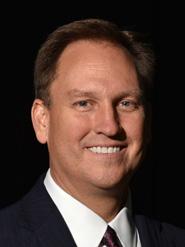
Eddie Moody Executive Director, National Association of Free Will Baptists
3 https://usafacts.org/articles/who-are-the-nations-veterans/ 4 https://www.data.va.gov/stories/s/Korean-War-Veterans/ 7wja-85c3/
5 https://www.nationalww2museum.org/war/articles/latest-vaprojection-reveals-rate-wwiis-fade-living-memory#:~:text= The%20agency’s%202024%20projection%2C%20based,other%20 causes%20during%20the%20conflict/


